Hue is scattered with beautifully decorated temples and mausoleums and deciding which one to visit can be tricky, especially if you have limited time.
Lucky for you, we’ve spent a week exploring Hue, and here are the 5 most impressive royal tombs we think you should visit.
To make the most of your trip to the tombs, we’ve listed our insider tips you won’t want to miss. This includes how to save money on entrance fees and the best tour to take with an English speaking guide.
So, whether you’re interested in the history of the Nguyen Dynasty or just want to marvel at the beautiful architecture, here are the best royal tombs in Hue.


.jpg)
Visiting Hue Soon?
Here’s everything you need to know to start planning your trip right away!
Best Time to Visit: January to April
Best Things to Do: Explore the Imperial Citadel and royal tombs
Top Tip: Save money on entrance fees by purchasing a combo ticket. You can reserve your Hue Monuments Ticket in advance here.
Best Guided Hue Imperial Tomb Tour:
Hue Royal Tombs Overview
Hue, located in the central region of Vietnam, was the imperial capital during the Nguyen Dynasty. Apart from the royal citadel, the city is also dotted with plenty of temples and mausoleums that are worth visiting.
.webp)
The tomb sites usually consist of a stele, along with temples used to worship the royal family and the final burial place. All the complexes have different styles that depict the time they were constructed, but what they all have in common is their grandeur!
With so many structures and history to discover at the mausoleums, we recommend spending at least two days so you don’t get overwhelmed. Some tombs are close to each other, so you can combine your visits, which is perfect if you have limited time in Hue.

Read More: Travel Guide to Visiting Hue
.webp)
Tips on Visiting the Royal Tombs of Hue
Before we begin listing the best imperial tombs to visit in Hue, here are our top eight must-know tips for the best experience.
- Don’t try to see all of the tombs at once. To avoid feeling overwhelmed, we recommend seeing them over two days.
- To save money on entrance fees, plan which tombs you want to visit ahead of time and get the combo tickets.
- Cash isn't accepted at the tombs, so bring a card or purchase your tickets online here!
- Go early in the morning and avoid weekends or holidays to beat the crowds.
- If you visit along with some tours, wait for the crowds to disperse before exploring, as they typically come and go.
- Consider hiring a guide for insights into the history and importance of these landmarks. A guide costs about 150,000vnd ($6) at each monument or book a private tour guide for the day here.
- Dress in light, comfortable clothes and wear suitable shoes.
- Carry water to stay hydrated.
Heading to Vietnam for the first time? Read our top things you need to know before visiting Vietnam. This includes the best sim card to buy, tipping etiquette, and many more!
.webp)
5 Best Royal Tombs to Visit in Hue
These are the 5 most impressive mausoleums to visit in Hue. Some are located a bit out of the center but they are worth the drive. Throughout the complexes, you’ll find plenty of signs both in Vietnamese and English, but for more information, we recommend getting a guide.
.webp)
1. Tu Duc Mausoleum
Location: Thuy Xuan Village, Hue City
Opening Hours: 7am to 5:30pm
Entrance Fee: 150,000vnd ($6) for adults and 30,000vnd ($1.15) for children

Buy Your Entrance Ticket in Advance Here!
The Mausoleum of Emperor Tu Duc is one of the biggest tomb complexes in Hue. He was the 4th emperor of the Nguyen Dynasty, and ruled from 1848 to 1883, making him the longest reigning monarch of all the 13 Nguyen emperors.
.webp)
The Mausoleum has two main areas to visit: the ritual area and the tombs. In addition, the complex has peaceful grounds that are well-maintained and plenty of trees that provide shade on hot days.
Upon entering the gate, you’ll be greeted by a lake that features pavilions on either side. These two pavilions attract the most visitors because of their picturesque setting, making them great for photos.

Planning your Hue trip? Find the best places to stay here!
.webp)
The ritual area has a few temples and buildings used to worship Emperor Tu Duc and his first wife, Queen Le Thien Anh.
Tip: Spend some time walking around the temples and discover the intricate designs on the walls and the carvings on the roofs. There's a small shop inside the temple where you can buy some refreshments.
.webp)
After the temples, head back to the pavilions and take a walk under the towering trees to the tombs. First you’ll see the tomb of Emperor Khien Phuc, the 7th emperor of the Nguyen Dynasty.
Next, you’ll find Queen Le Thien Anh’s tomb.
.webp)
Finally, work your way to Emperor Tu Duc's final resting place, which is the largest and most distinguished.
A colorful pavilion greets you with its yellow pillars and motifs of swirling blue clouds. Inside, a stone stele contains the emperor's self-critical autobiography
Coming from Hoi An? Book a private transfer to Hue with scenic stops along the way, including Lap An Lagoon, and enjoy a drive along the stunning Hai Van Pass.
.webp)
Past the pavilion lies a crescent shaped lake overlooking the emperor's final resting place. In comparison to the rest of the complex, the burial site is modest, with the tomb solely in the center and surrounded by a wall.
Tip: The Tu Duc tomb is located a bit farther from the main center. You can book your tickets in advance here or at the ticket counter by the entrance.
.webp)
.webp)
Apart from being the biggest complex, Emperor Tu Duc's Mausoleum is also one of the most visited tombs in the old city, so expect some crowds.
Tip: We recommend combining your visit with Dong Khanh Tomb, which is located nearby. Save money by purchasing a combo ticket to see both!
.webp)
There are rows of restaurants serving food and souvenirs shops outside the gate. If you’re looking for a place for lunch, we recommend eating at Morning Glory Restaurant before continuing to Dong Khanh Tomb.
Did you know you might need a visa for Vietnam? Check if you need one to enter the country with this quick guide on visa requirements!
.webp)
2. Dong Khanh Mausoleum
Location: Thuy Xuan Village, Hue City
Opening Hours: 7:30am to 5:30pm
Entrance Fee: 100,000vnd ($4) for adults and free for children

Buy Your Entrance Ticket in Advance Here!
About 700 meters from Emperor Tu Duc’s Tomb lies the resting place of Dong Khanh, the ninth emperor of the Nguyen Dynasty. He reigned for four years between 1885 and 1889.
.webp)
The site is made up of two separate parts: the burial ground and a temple used to worship emperor Dong Khanh.
Tip: We recommend visiting the temple first and then the burial grounds. The area is not as expansive as Tu Duc’s mausoleum, so you probably won’t spend more than an hour here.
.webp)
When approaching the temple, a striking red gate with intricate silver dragon patterns welcomes you. Beyond it lies a spacious courtyard with two buildings on the side, their green tiled roofs contrasting with the vibrant yellow walls.
At the heart of the complex stands the Ngung Hy Temple, a long structure crowned with a yellow tiled roof and red walls that sparkle with gold accents. Its exterior is striking with detailed mosaic art depicting dragons, carps, and flowers.

Read: Most Beautiful Places to Visit in Vietnam
.webp)
To get to the burial site, you have to walk around the left side of the temple. Here, you are met by a path surrounded by tall trees leading to the tomb. The burial site consists of three sections: the salutation court, the stele stone, and the tomb.
Read: Discover the best things to do in Hue beyond the royal tombs, from peaceful lagoons to fascinating museums.
.webp)
Throughout the burial complex, you’ll notice intricate carvings of dragon, lotus flowers, and other traditional symbols.
Tip: We arrived later in the afternoon and had the entire complex to ourselves, which was very peaceful and allowed us to fully enjoy the tranquility of the surroundings.
.webp)
3. Thai Vuong Mausoleum
Location: Thuy Xuan Village, Hue City
Opening Hours: 7:30am to 5:30pm
Entrance Fee: Free
The Thai Vuong Mausoleum is unique in comparison to the other royal tombs on this list. Thai Vuong is the father of Emperor Dong Khanh, however, he never ascended to the throne. Which might explain why his tomb isn't as well-known but it is a hidden gem on its own.
.webp)
Despite its modest size, his mausoleum is beautifully kept, showcasing vibrant sculptures and delicate details that are truly worth admiring. It is located close to Emperor Dong Khanh’s burial place, so it’s a great addition to your itinerary if you’re already in the area.
To reach it, follow the same path as you would to Dong Khanh's Tomb. Then, a small trail on the right leads uphill through the forest.

Staying overnight in Hue? Check out all hotels and homestays here!
At the end of the pathway, you will be greeted by a colorful building covered with mosaic art housing a stele. Beside it rests Thai Vuong's tomb, encircled by intricate walls and pillars adorned with glass fragments and plates.
The quiet surroundings, along with the chimes of bells and rustles of the wind, make visiting Thai Vuong's tomb magical yet eerie at the same time.
Read: Find out the best time to visit Vietnam based on where you want to go, and avoid major holidays and typhoon season for the best experience.
.webp)
4. Khai Dinh Mausoleum
Location: Chau Chu Village, Hue City
Opening Hours: 7am to 5:30pm
Entrance Fee: 150,000vnd ($6) for adults and 30,000vnd ($1.15) for children

Buy Your Entrance Ticket Here!
Kai Dinh was the 12th emperor of the Nguyen Dynasty and ruled for 9 years, from 1916 to 1925.
.webp)
His burial complex is the most modern and extravagant of all the tombs we've seen in Hue. This opulence may be attributed to his status as the final monarch to commision a tomb under the Nguyen dynasty.
Interesting fact: The 13th and last emperor of the Nguyen Dynasty, Bai Dai, died in exile in France, where his grave is located.
Nestled on top of a hill, the tomb complex takes on a rectangular form surrounded by lush greenery. It comprises five platforms connected by staircases adorned with intricate dragon sculptures and various designs.
.webp)
At the highest level of the complex lies Thien Dinh Palace, which is the main structure and houses the relics of the emperor.
The overall exterior of the complex might look plain with its black and gray concrete. But if you look closely, you’ll find intricate carvings on every pillar, wall, and railing. This offers a striking contrast to its unassuming facade.
Still planning your Vietnam itinerary? We have comprehensive guides to popular attractions as well as many off-the-beaten destinations. Whether you have two weeks or a month to explore Vietnam, plan your trip with our itineraries that will show you the very best of the country.
.webp)
The inside of Thien Dinh Palace however, is a whole different story. As soon as you enter, you’ll be greeted by vibrant murals and colorful decorations everywhere you look.
.webp)
If you think you’ve seen it all, wait till you get to the central chamber, where the statue of Emperor Khai Dinh is set above his grave.
The room is lavishly decorated from floor to ceiling. You can find mosaic art with inlaid ceramic and glass fragments around every corner. While the ceiling features elaborate dragon murals.
Tip: You can find some interesting photos inside the temple which documents the process of building the tomb.

Read: Best Transportation Options in Vietnam
5. Minh Mang Mausoleum
Location: Huong Tho Village, Hue city
Opening Hours: 7:30am to 5pm
Entrance Fee: 150,000vnd ($6) for adults and 30,000vnd ($1.15) for children

Buy Your Entrance Ticket Here!
Nestled beside the Perfume River and embraced by rolling hills, the tomb complex of Emperor Ming Mang offers a peaceful escape. He was the second monarch of the Nguyen Dynasty, reigning for 21 years from 1820 to 1841.
Although the mausoleum is one of the furthest royal tombs from the citadel, it's well worth the journey just to experience its serenity.
Tip: There are shops near the parking lot for snacks and drinks, as well as just after the entrance.
.webp)
The layout of the Ming Mang tomb complex is simple. Following a straight path from the Dai Hong Gate to the tomb itself, you’ll pass through picturesque tiered gardens and over idyllic lakes.
To reach the heart of the complex, you'll ascend steps to the stele house. From here, you can view the expansive salutation court and the gate to the Sung An Temple, a place of worship for the emperor and his empress.
Tip: Make sure you’re protected against unexpected emergencies while traveling. Get your travel insurance with Heymondo today and enjoy 5% off as our reader.
.webp)
Further along, a bridge leads you to the Minh Lau Pavilion, a two-story wooden structure honoring the emperor's achievements. Admire the bridge below spanning a tranquil lake and leading to Huyen Cung, the final resting place of the emperor.
.webp)
The tomb is a solemn reminder of Emperor Ming Mang's legacy, surrounded by a wall with a locked gate, opening only once a year on his death anniversary.
Tip: We recommend combining your visit to Ming Mang tomb with Khai Dinh tomb as they are located close to each other.
Have more time? If you’re interested in visiting more royal tombs in Hue, you can visit the tomb of Gia Long, the founding emperor of the Nguyen dynasty. We didn’t have time to visit his grave as it was located a bit further from all the other tombs.
.webp)
Imperial Tombs in Hue Tours
While it’s straightforward to visit the tombs on your own, we recommend hiring a private car to take you from one mausoleum to the next for convenience. Since the complexes are located farther from the center, it can be a challenge to find a taxi.
Here are the popular transfer services you can book to see the tombs in Hue. It’s important to note that these tours only include the driver who will wait for you outside the premises. You can hire a guide at the mausoleum for 150,000vnd ($6).
Here are the most highly recommended tomb tours which include an English speaking guide.
And those are the 5 best royal tombs you have to see in Hue!
If you’re looking for more impressive temples in Vietnam, you can visit the pagodas on the Marble Mountains, located in Da Nang City. For more off-the-beaten path locations, head to An Giang Province and visit the most beautiful temples in the Mekong Delta.
If you have any questions, let us know in the comments below.
Some links in this Hue Tombs Guide may be affiliate links.
This means that if you make a purchase after clicking on one of our links, we will receive a small commission at no extra cost to you. Please know that by doing so, you are supporting Colorful Journeys in continuing to provide free high quality content to help you in your travels!
.webp)
.webp)
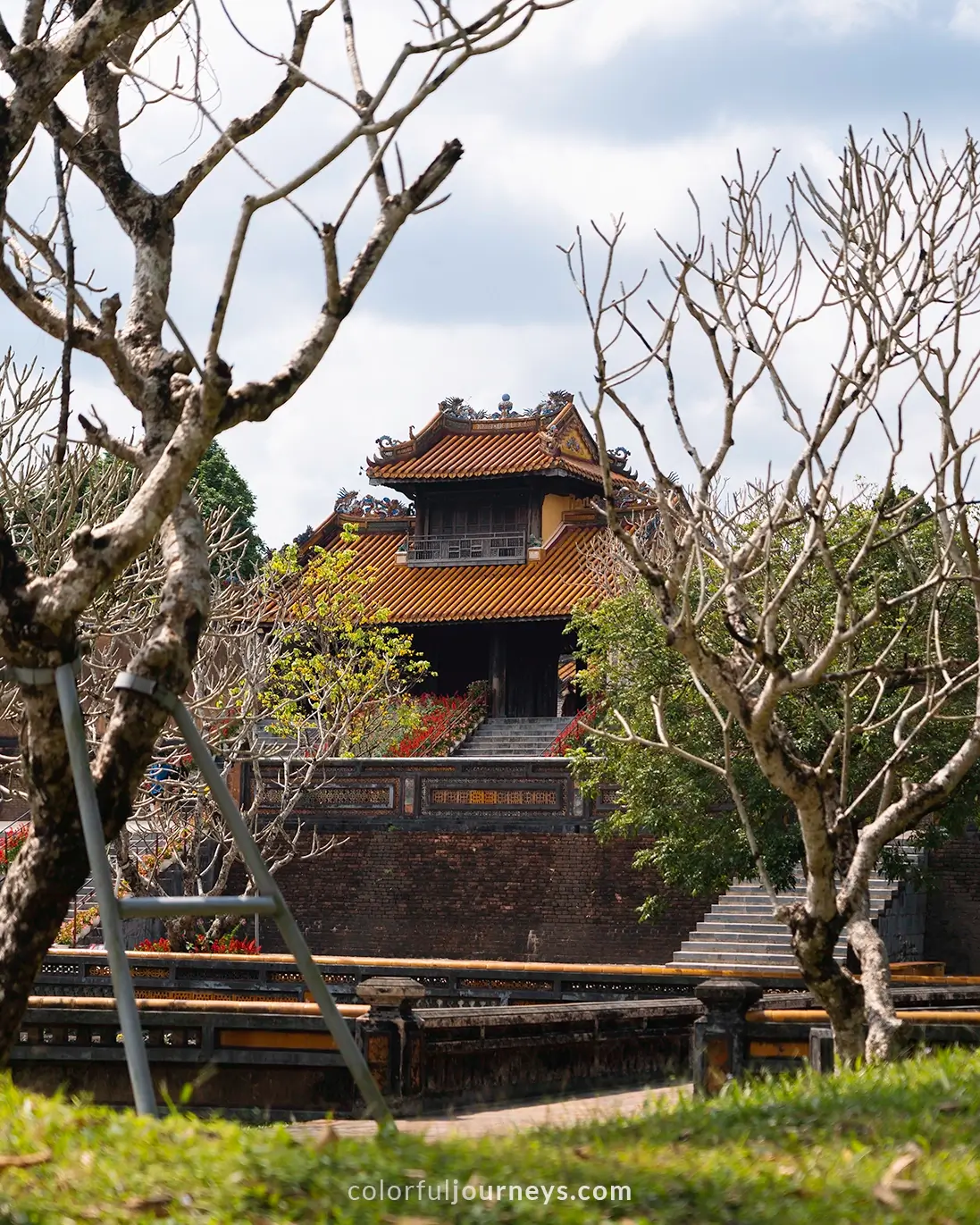
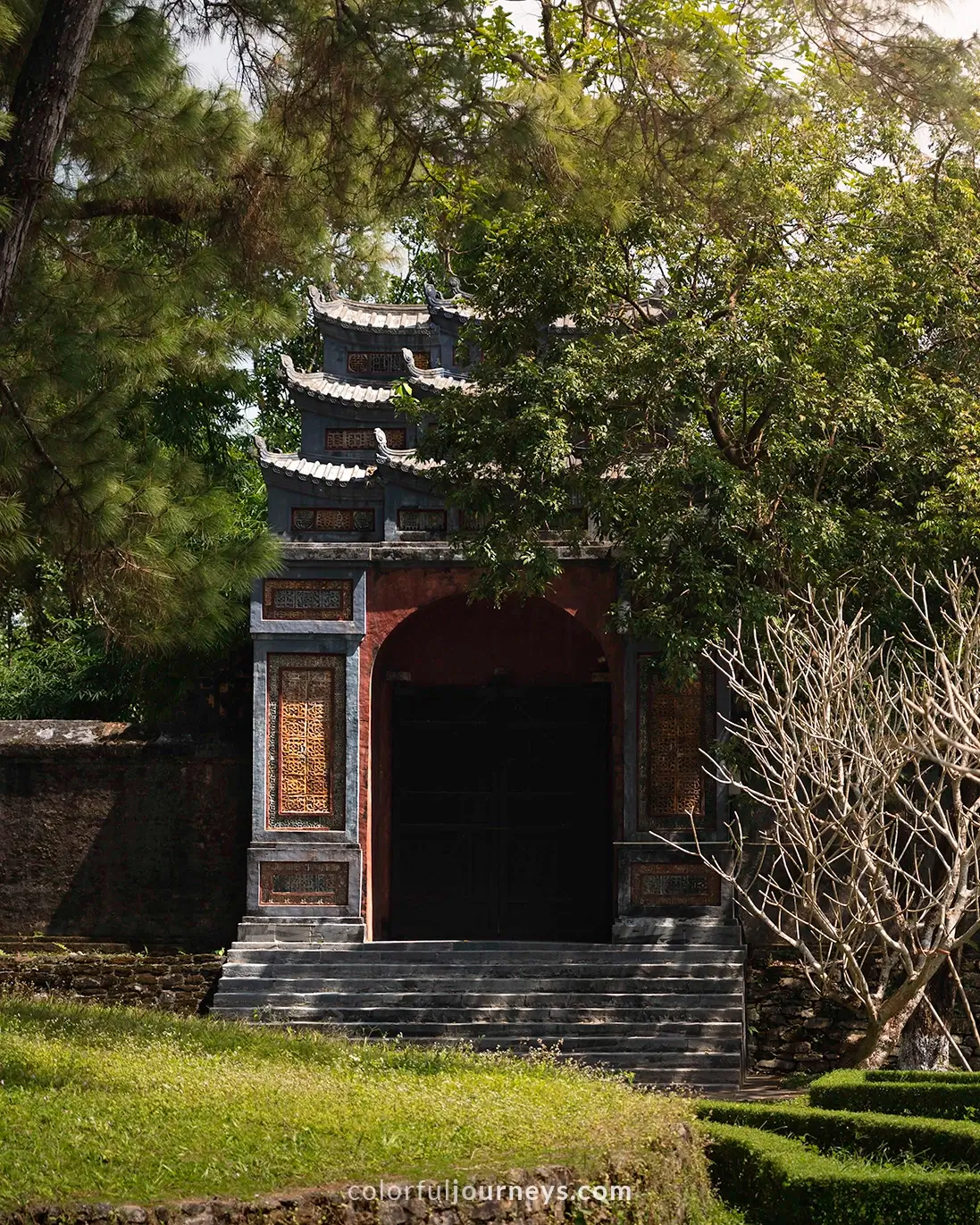
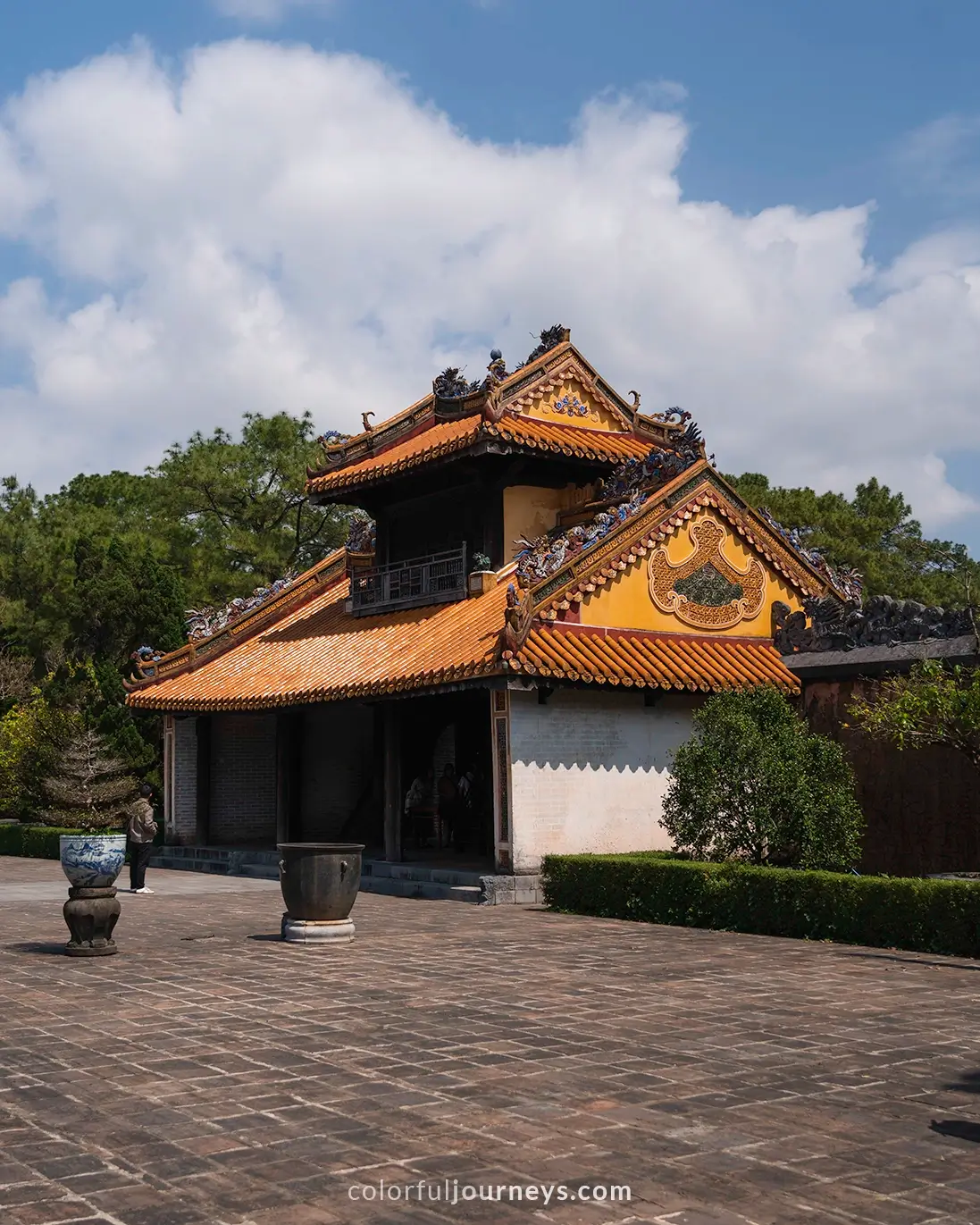
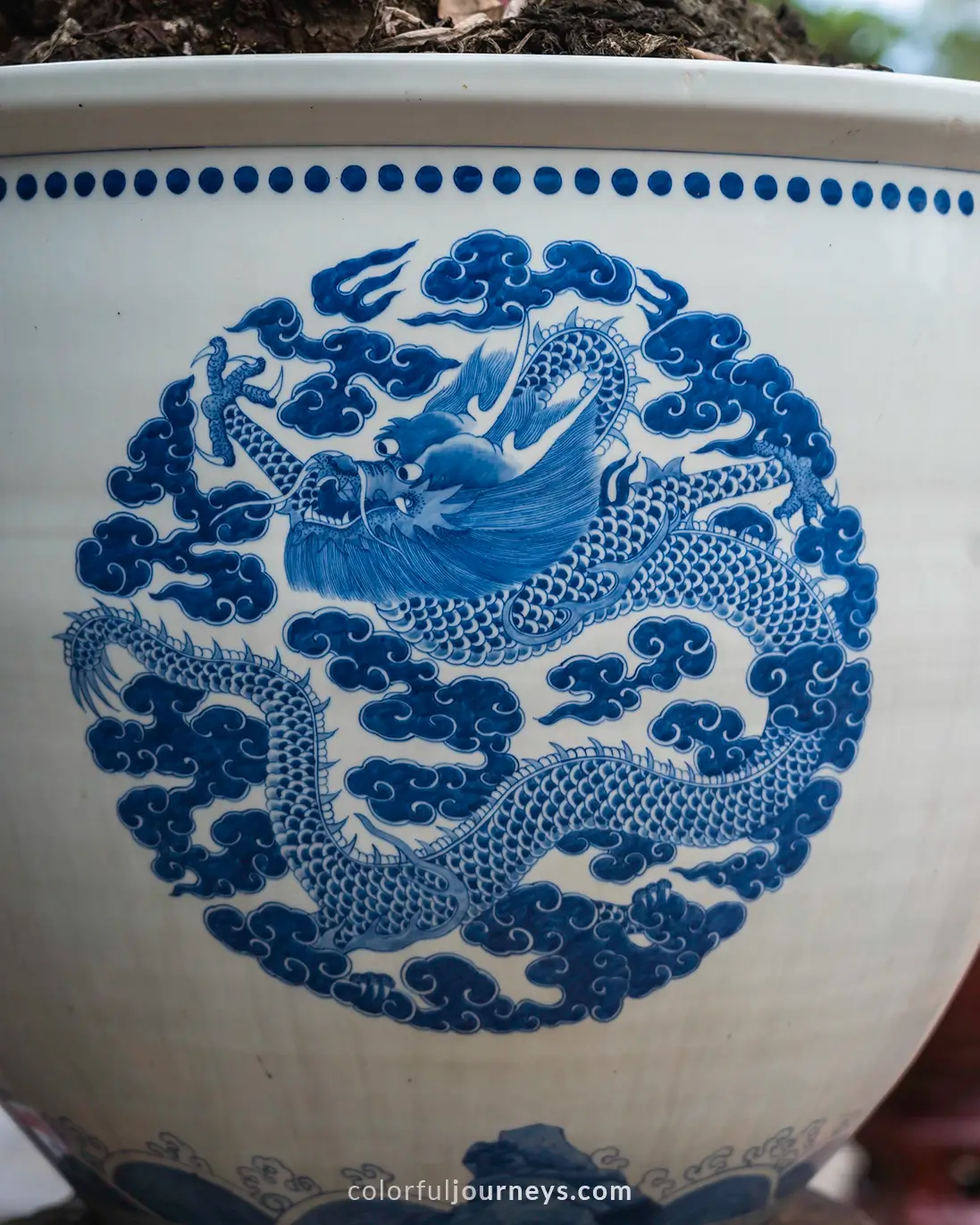
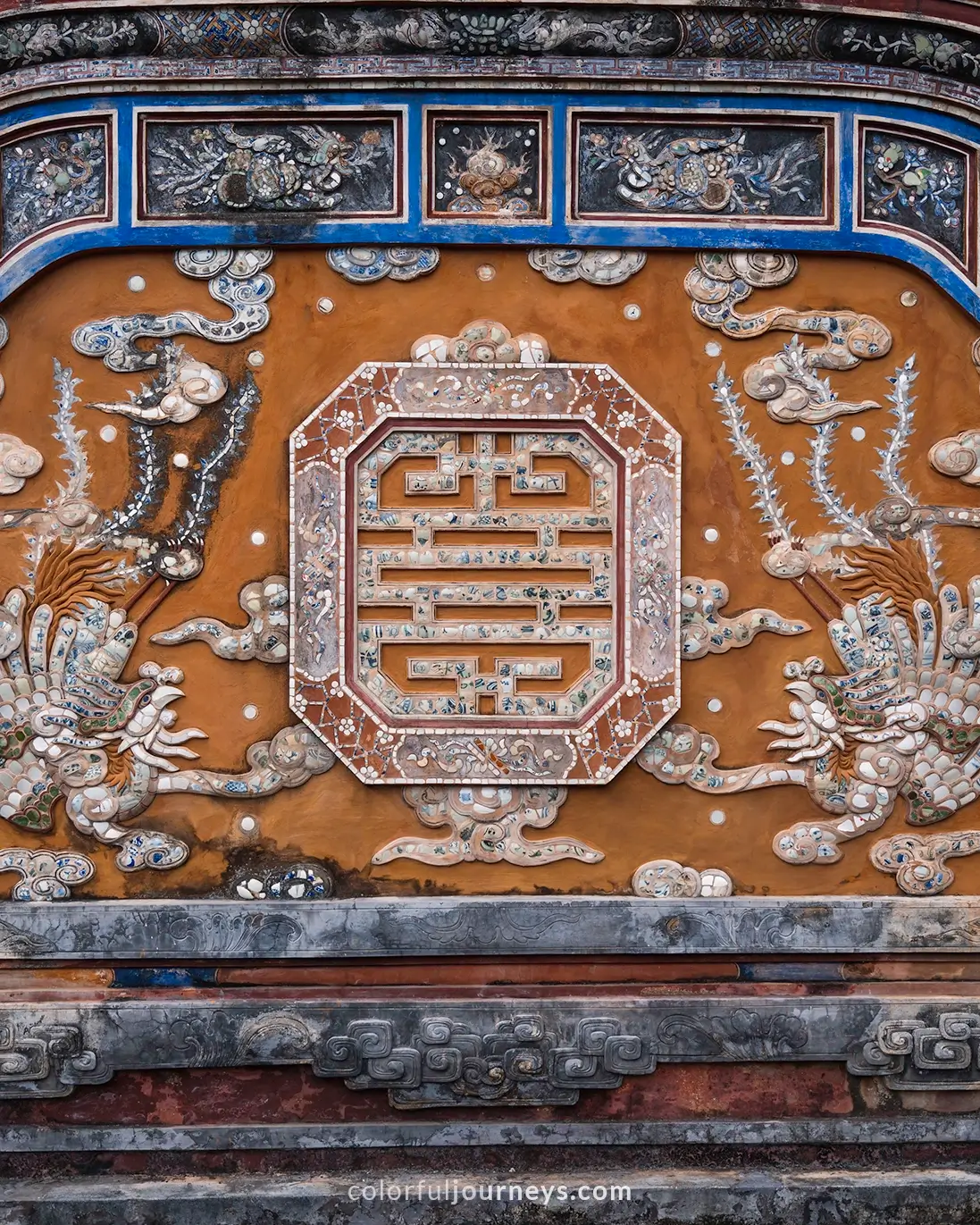
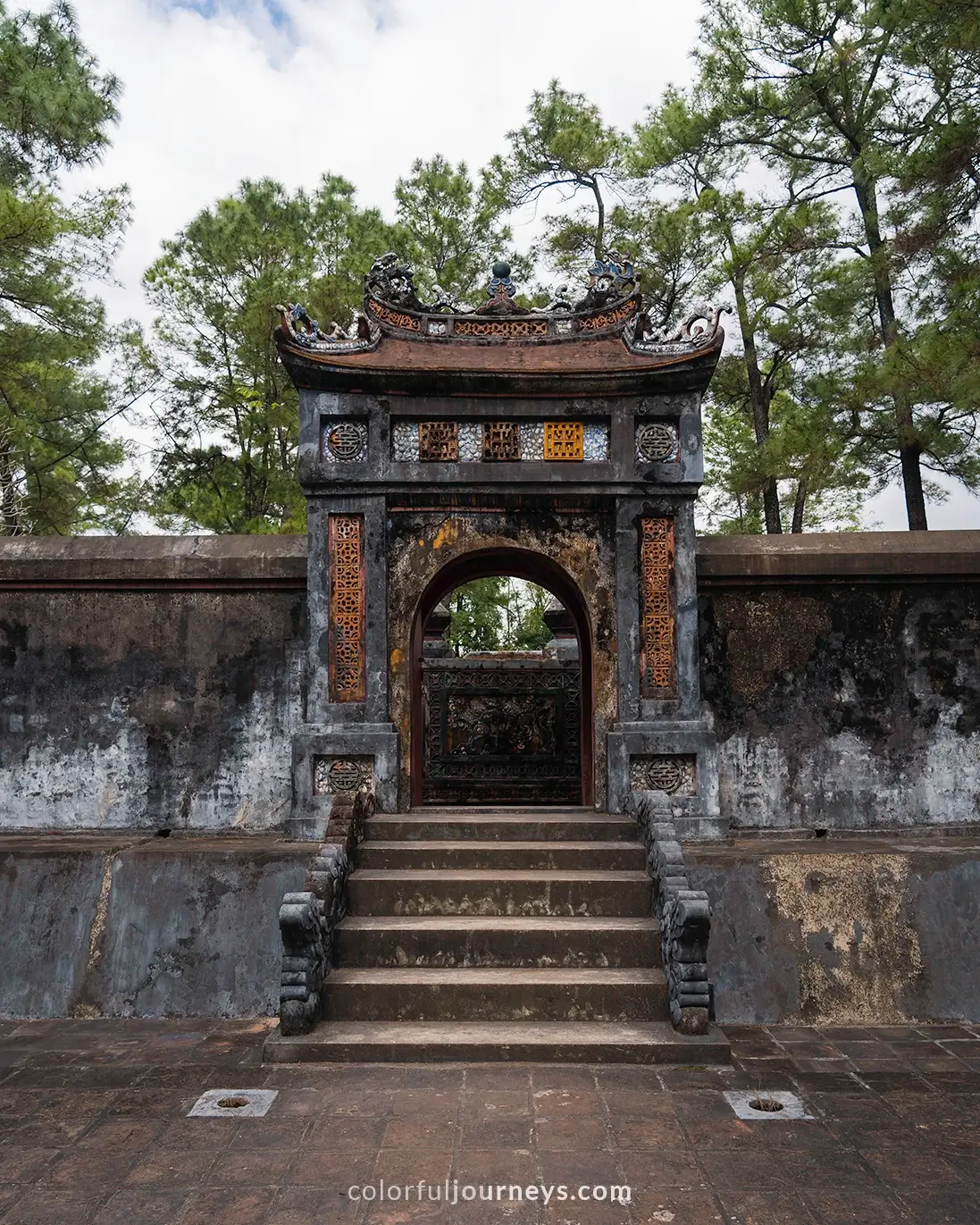
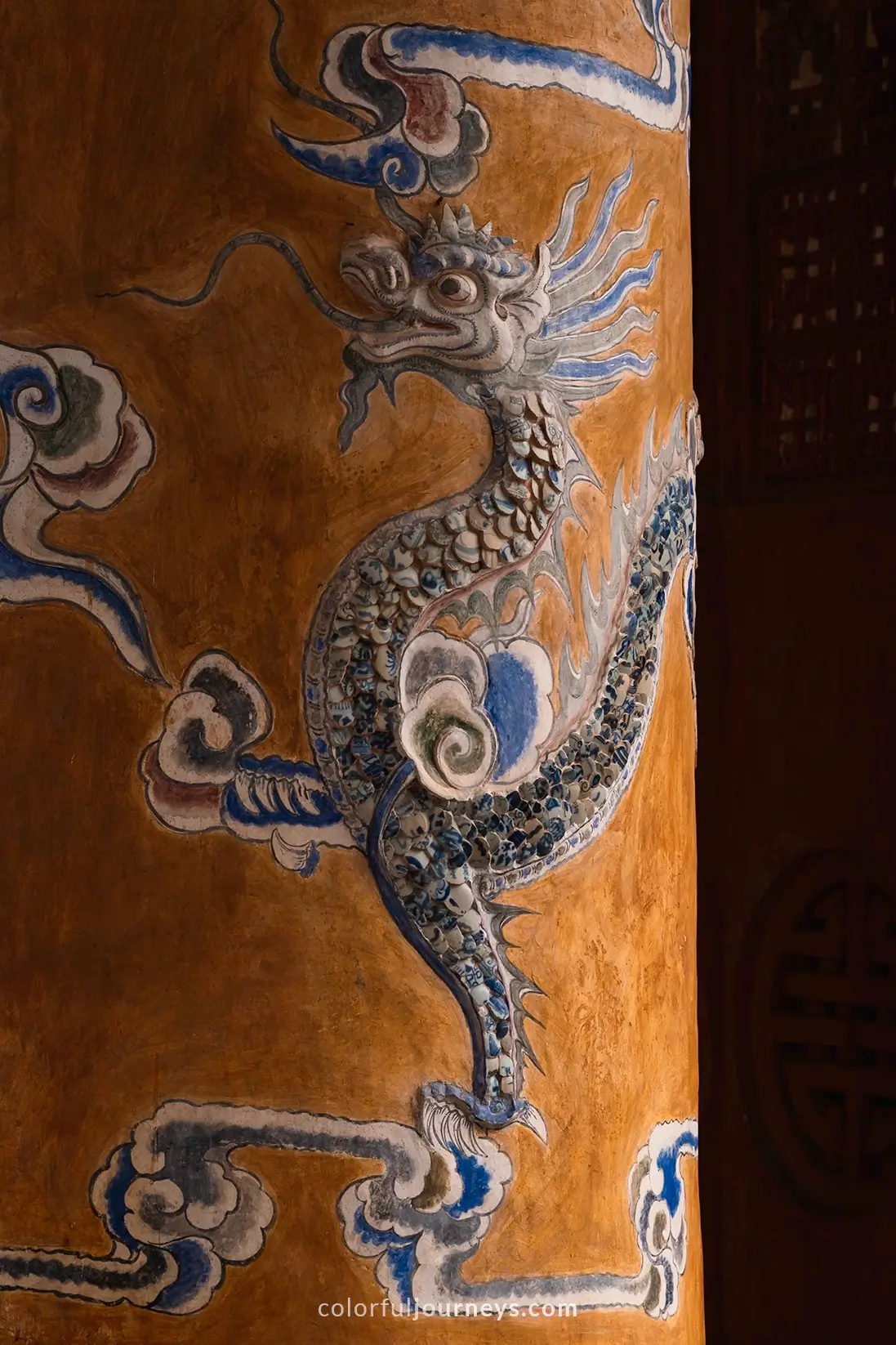
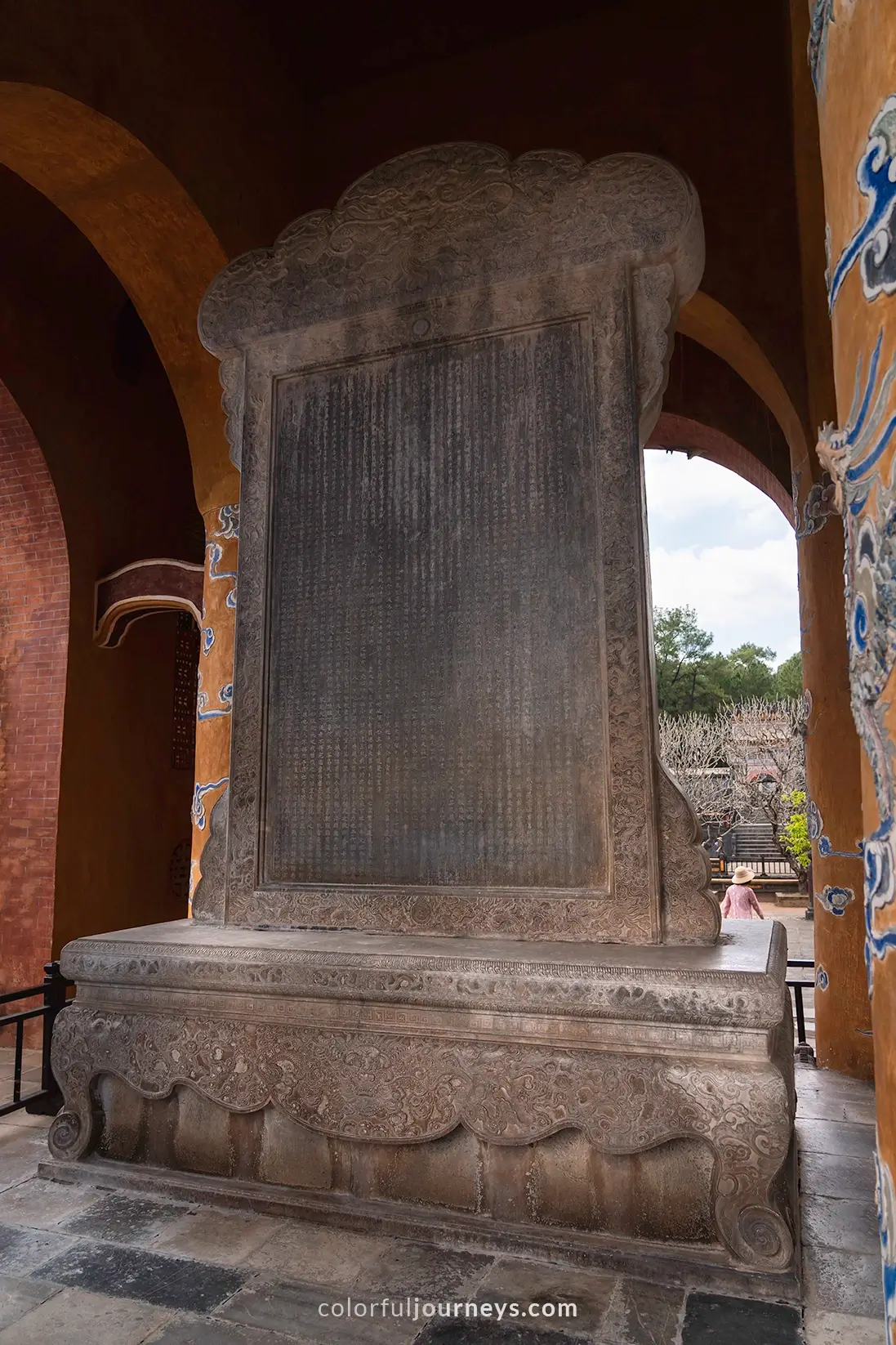
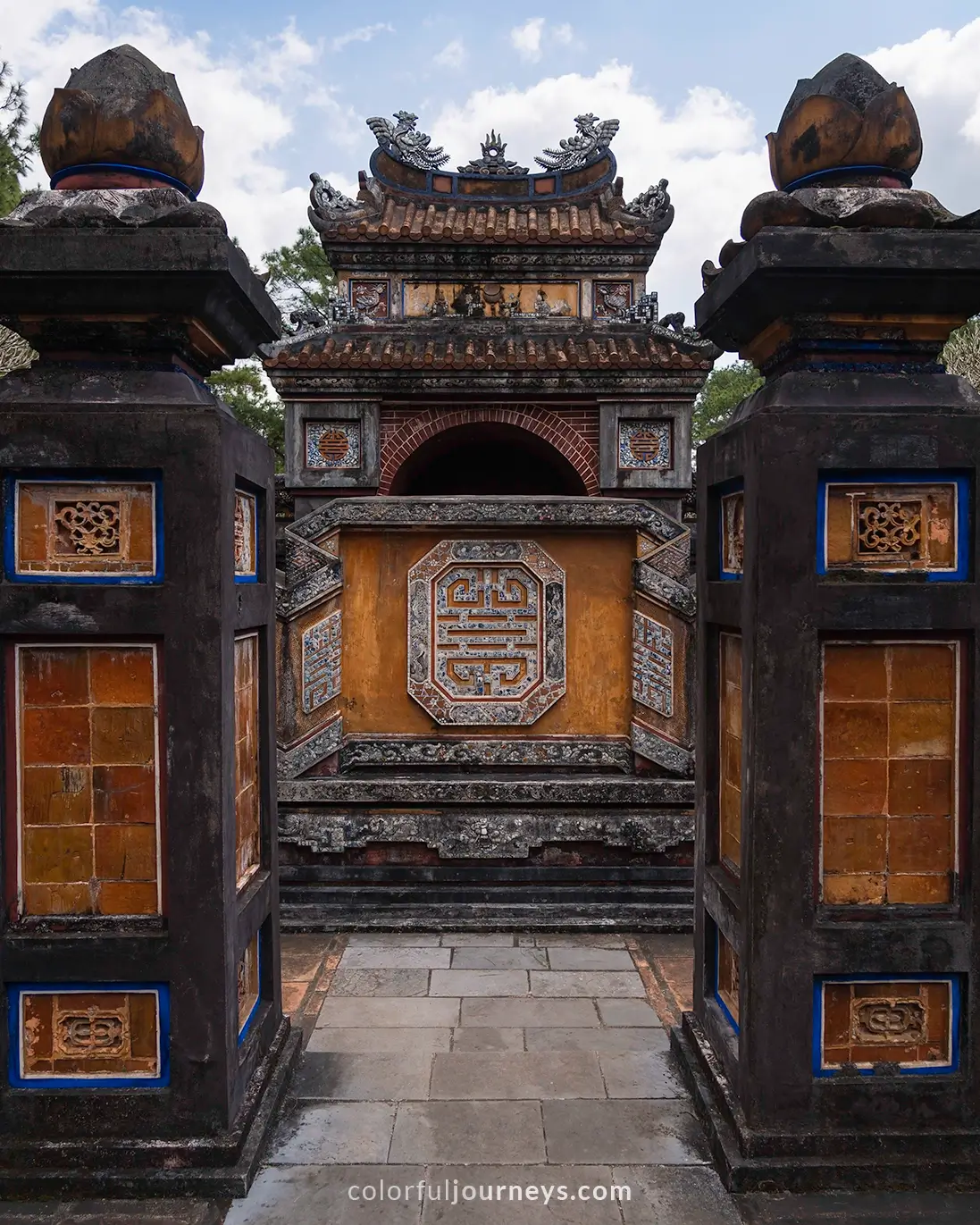
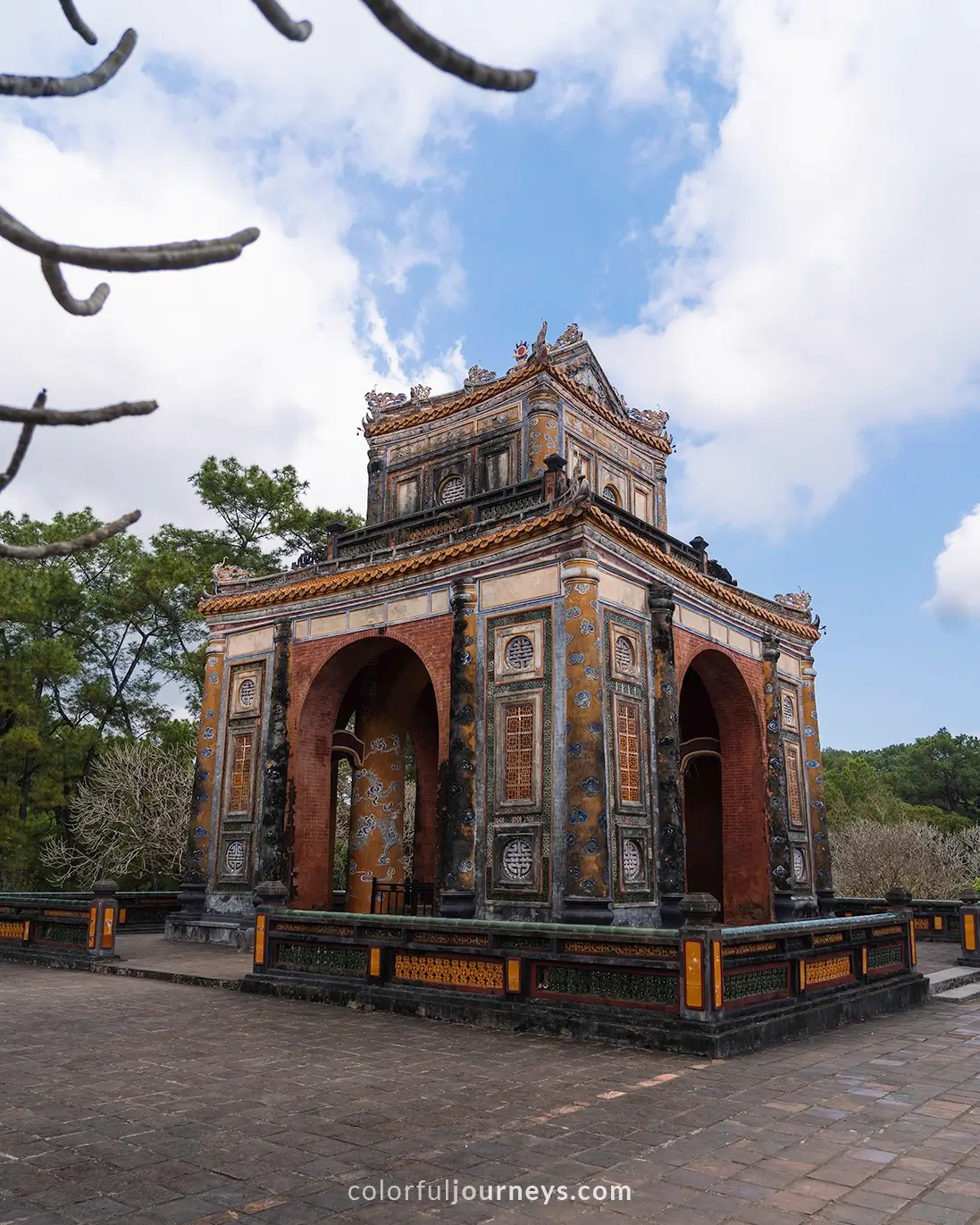
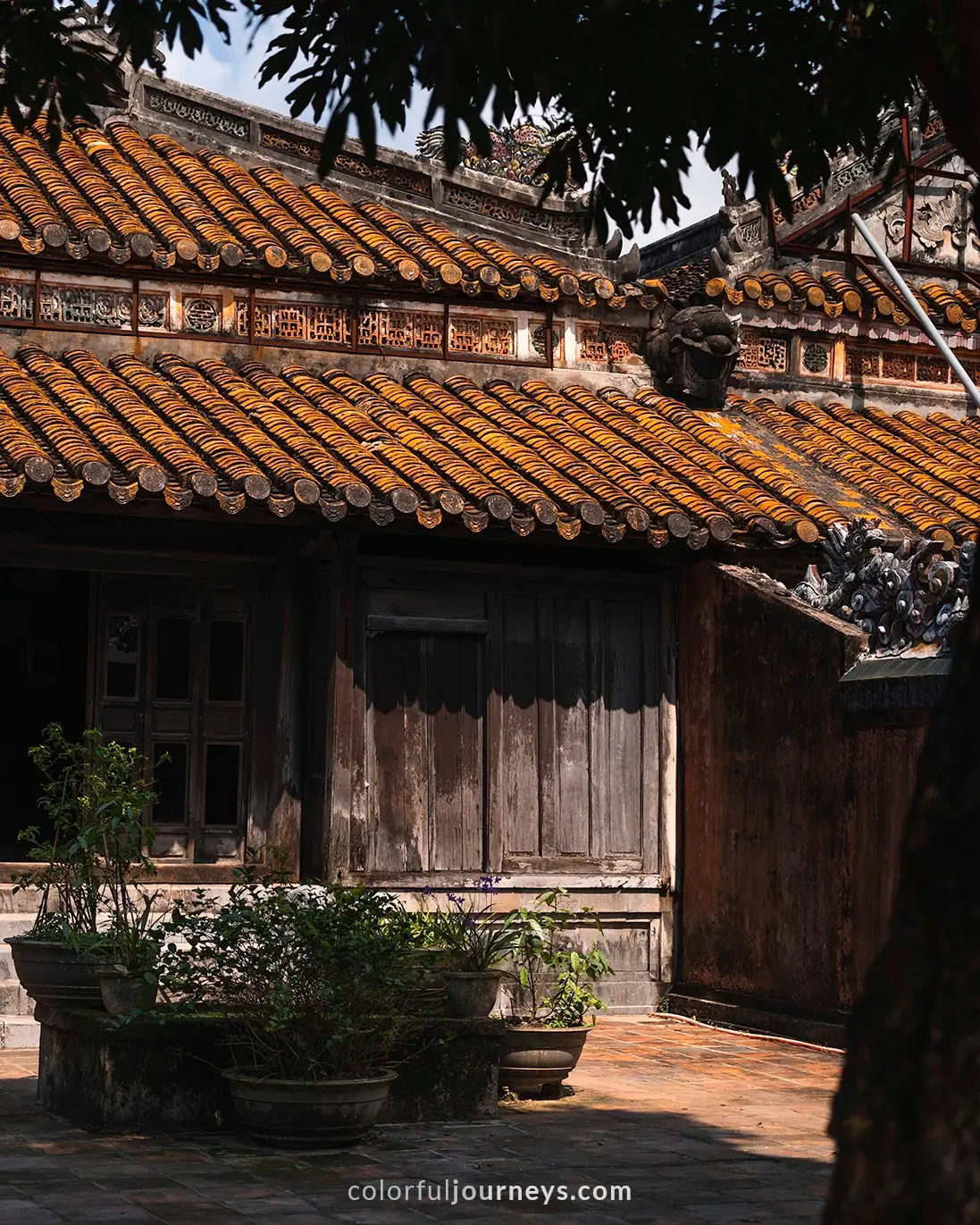
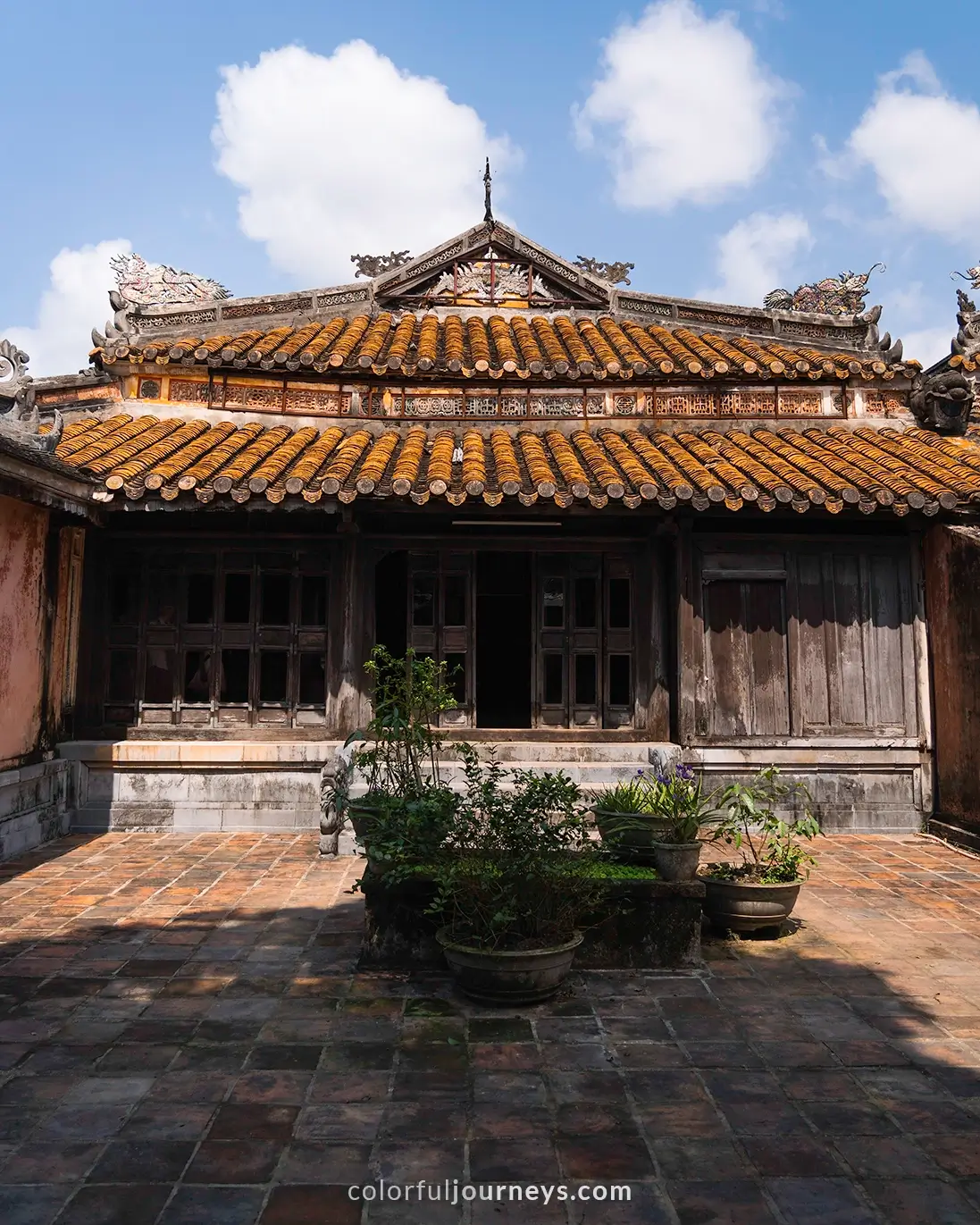

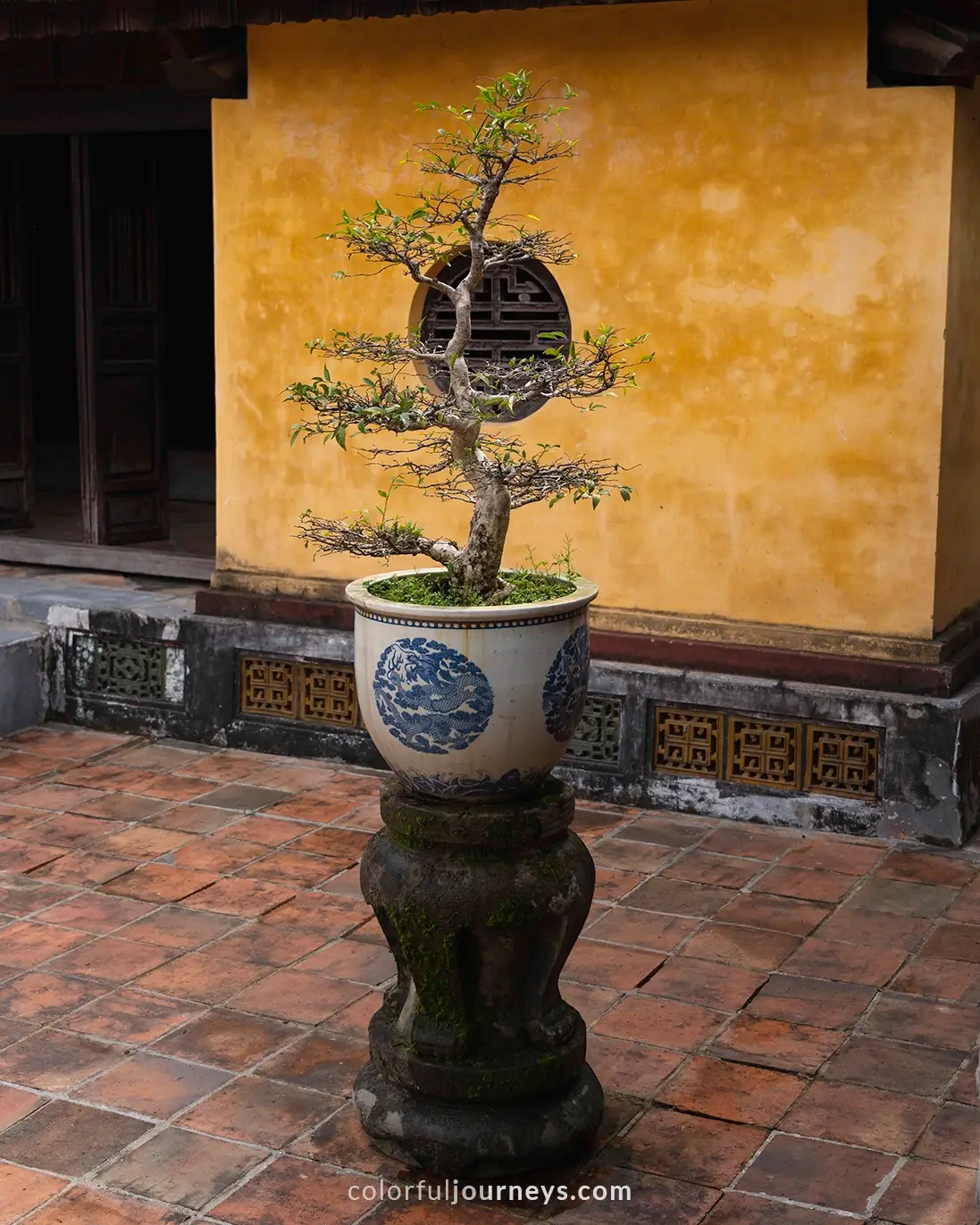
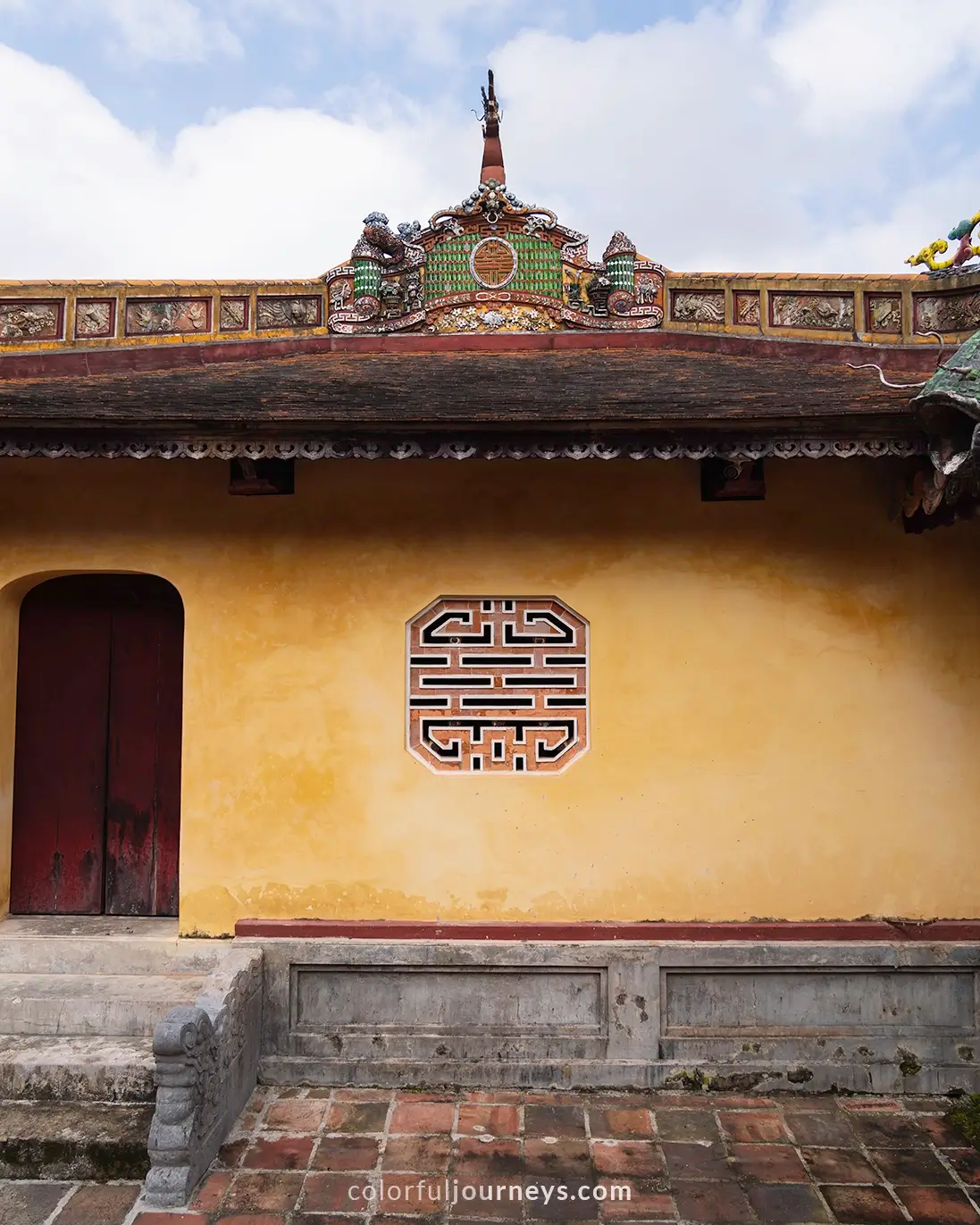
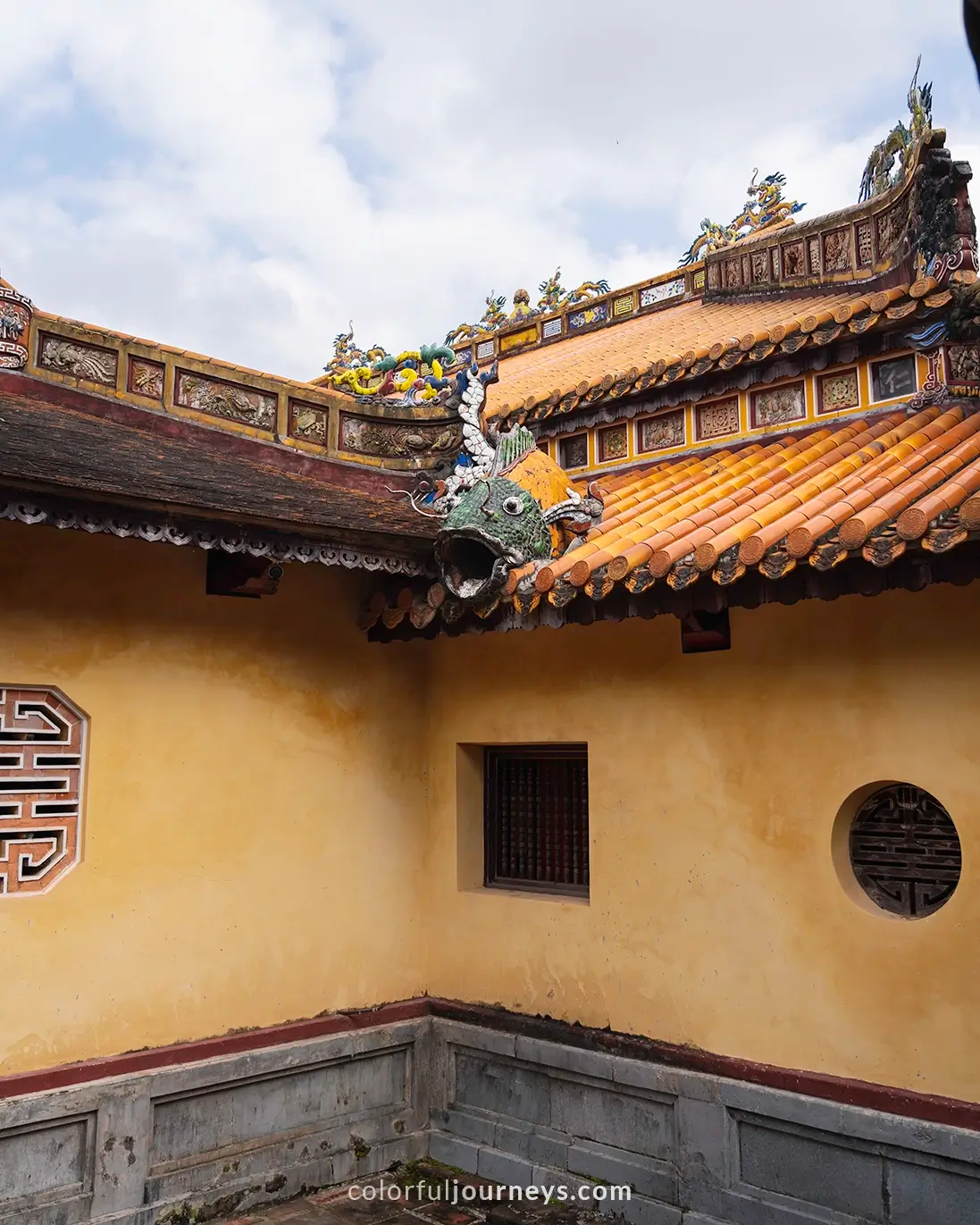
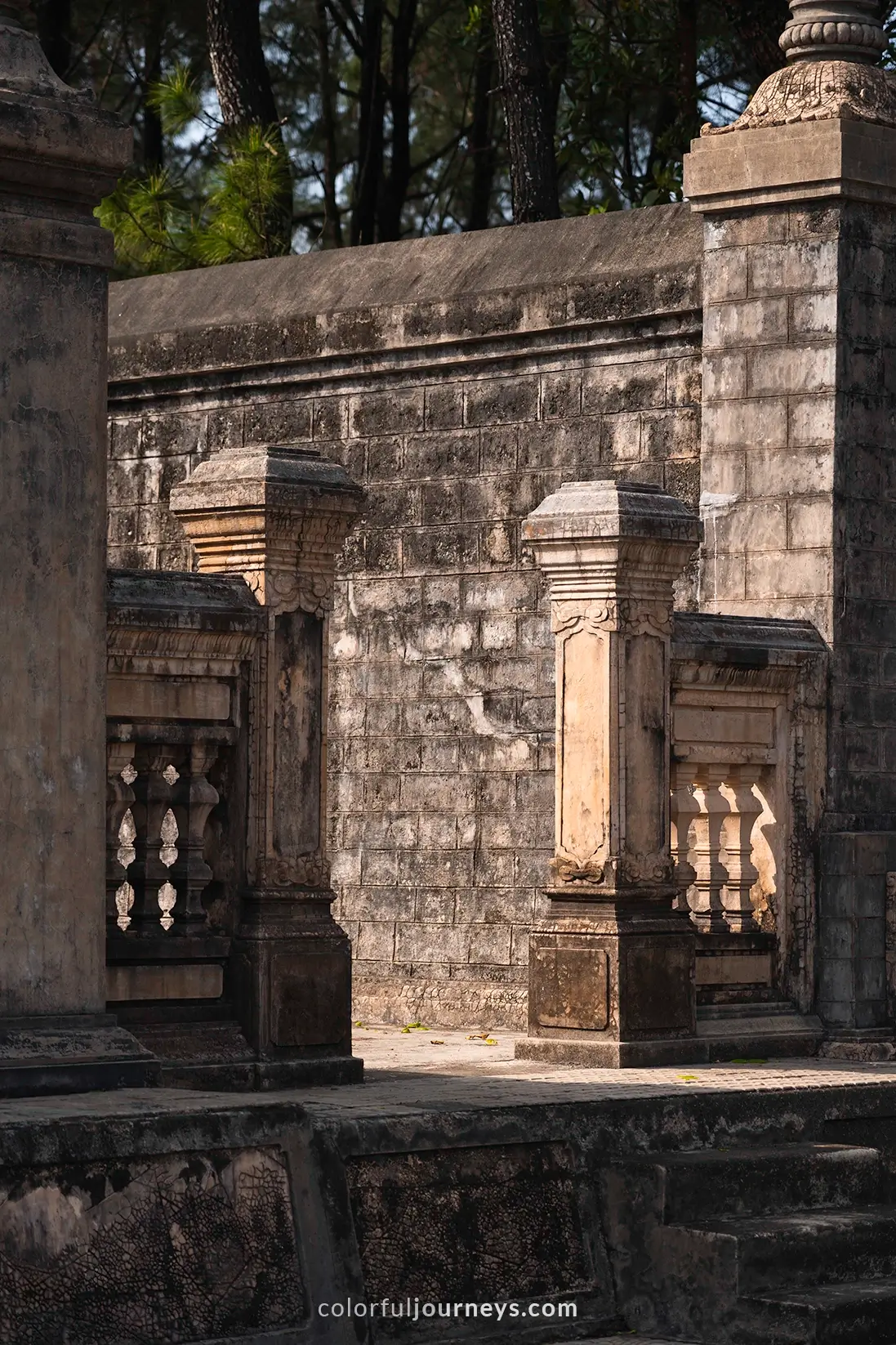
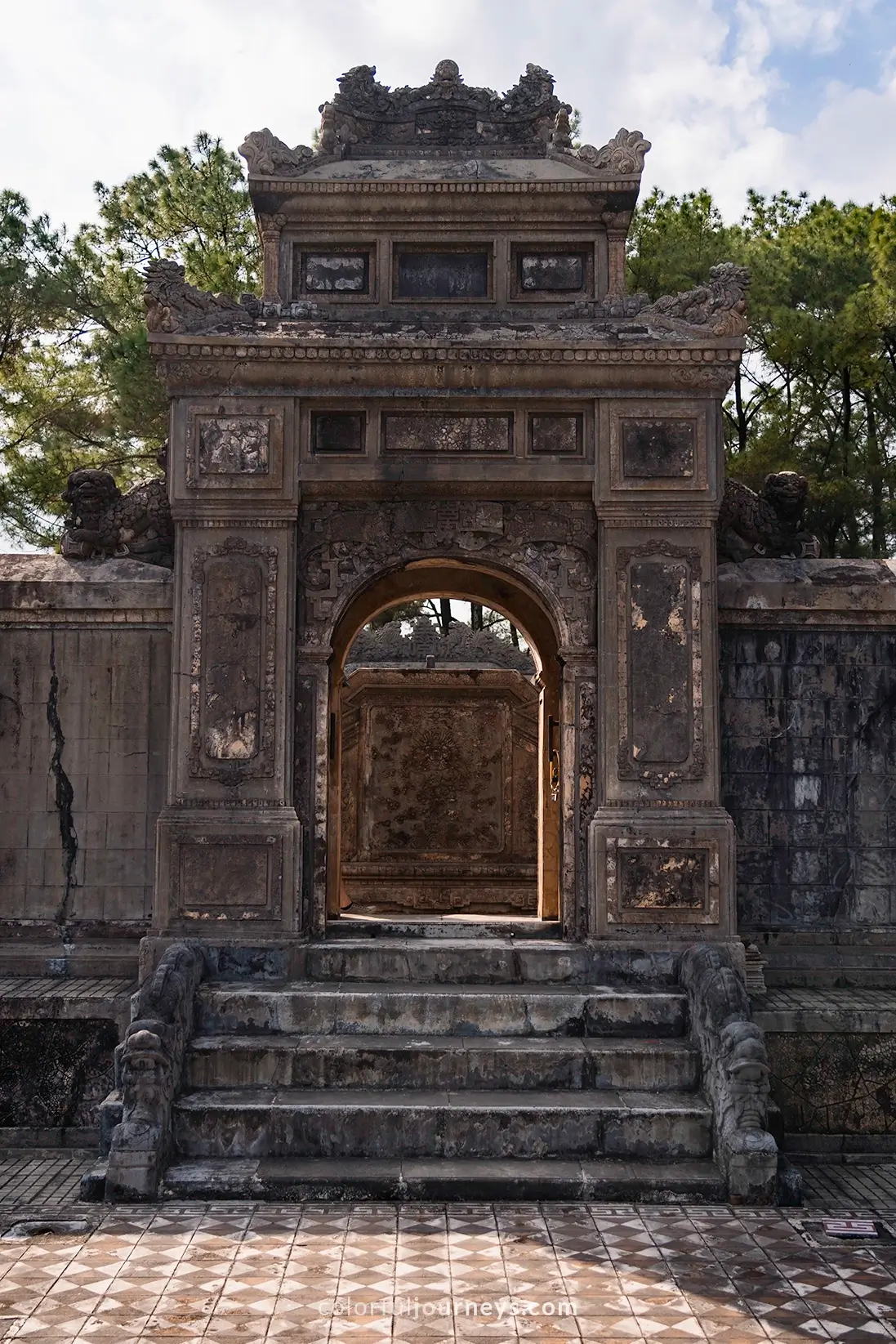
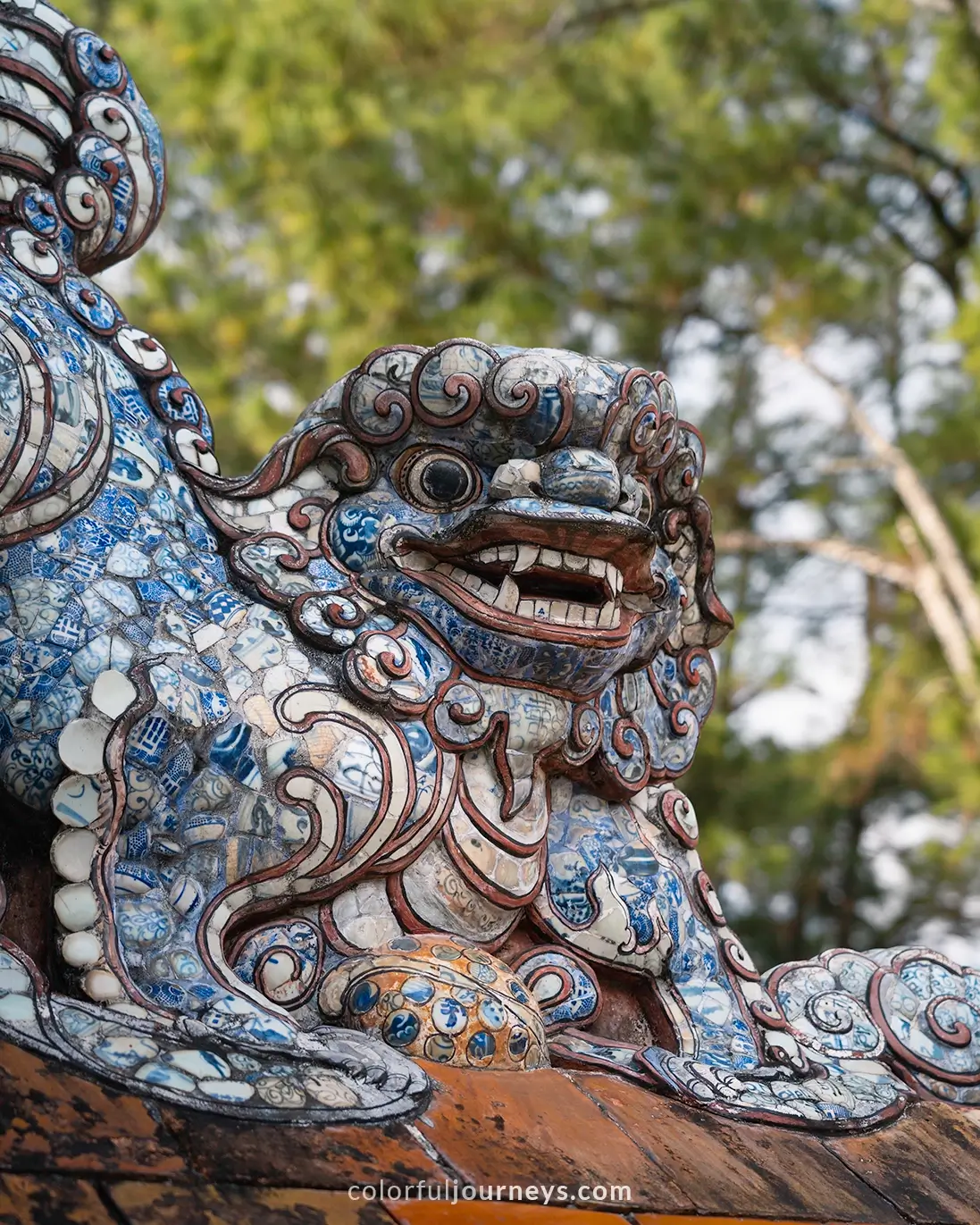
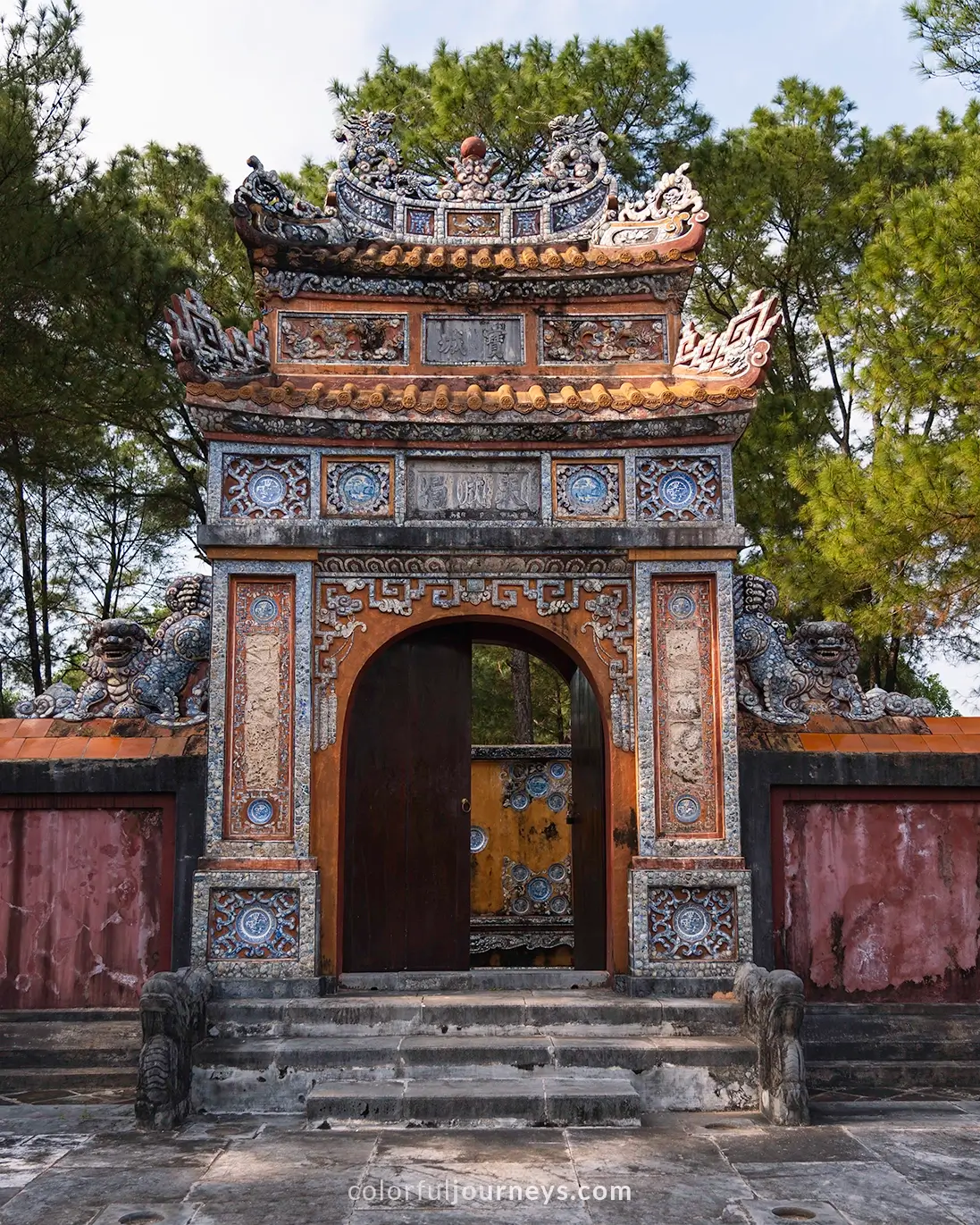
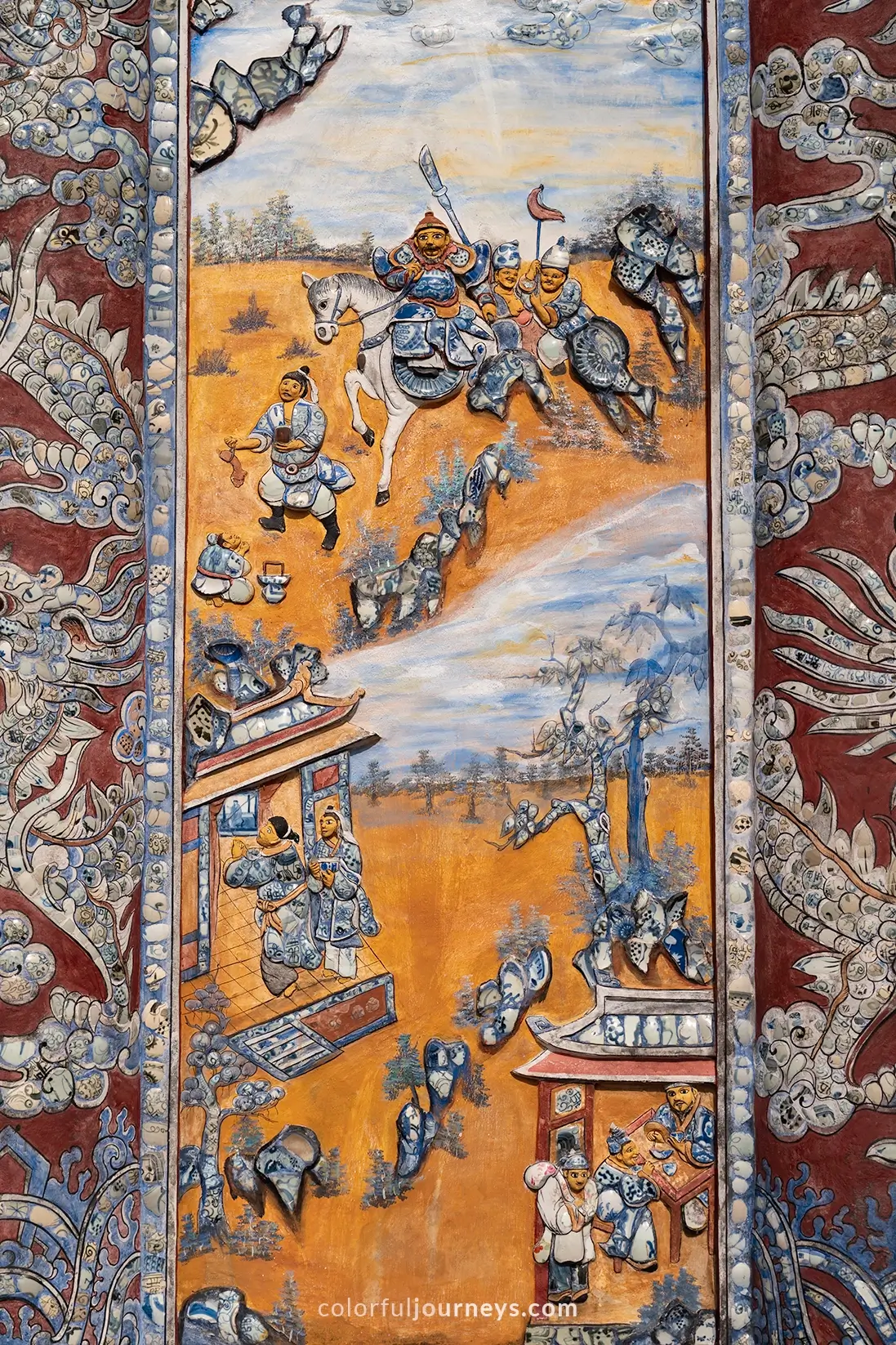
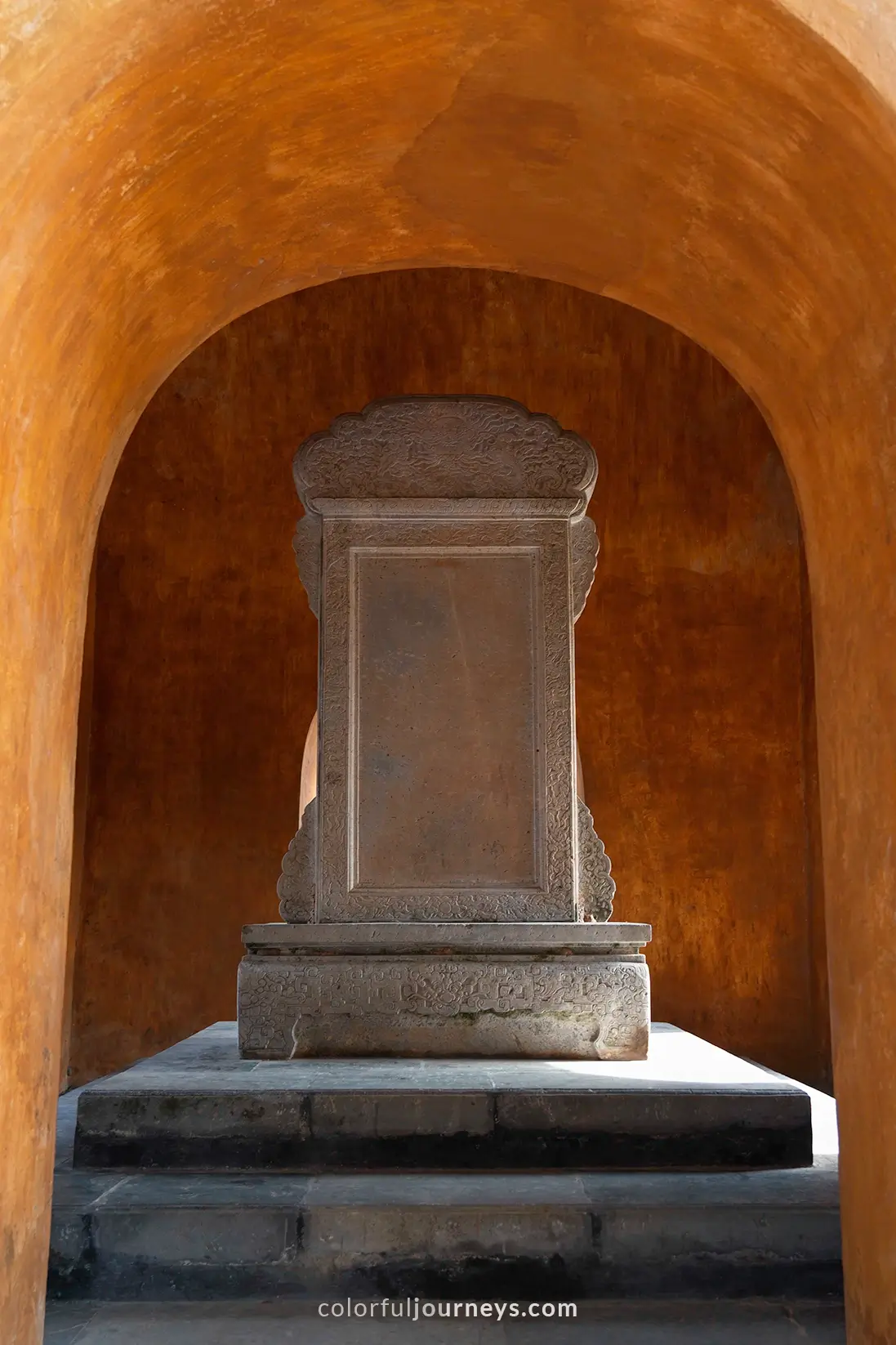
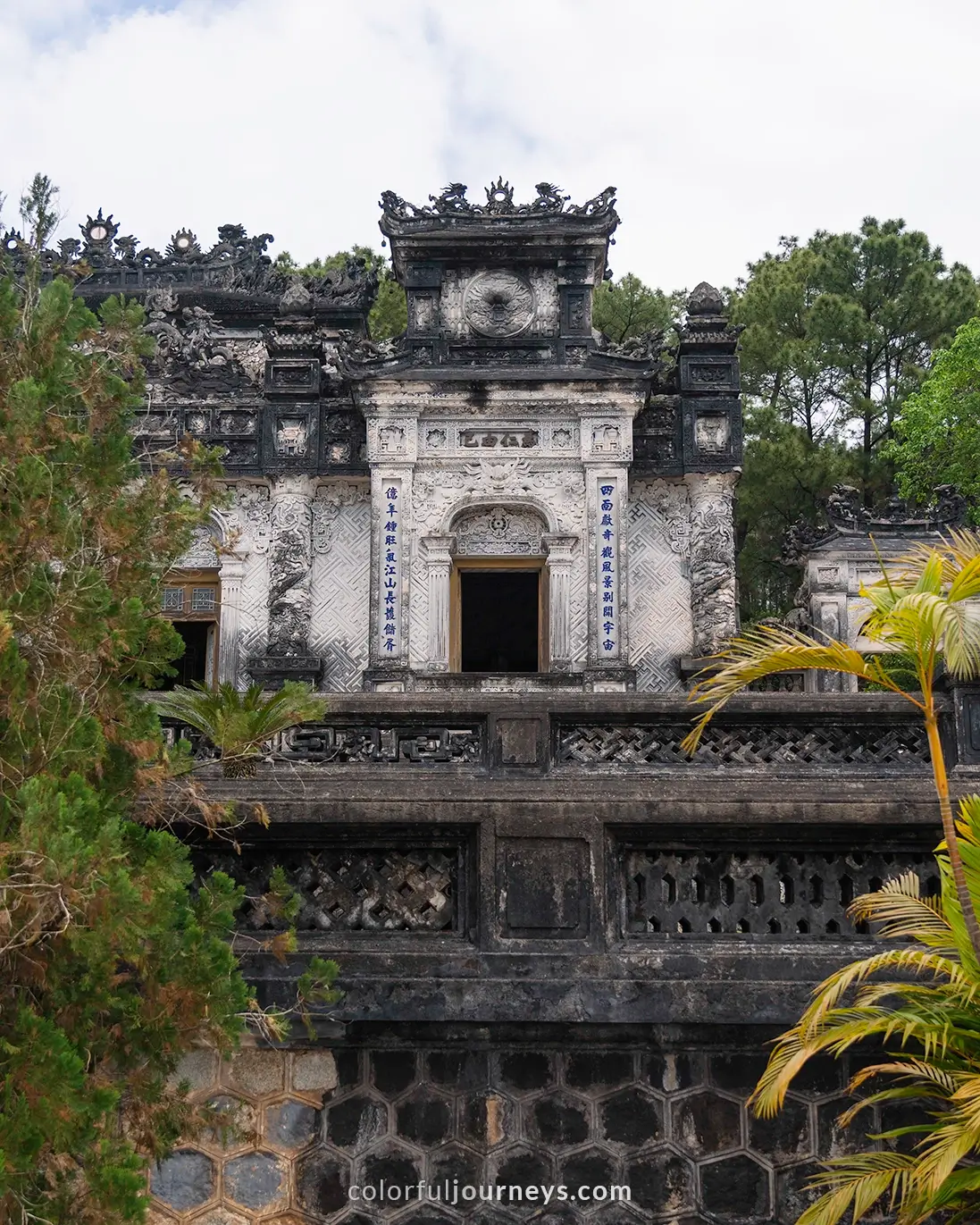

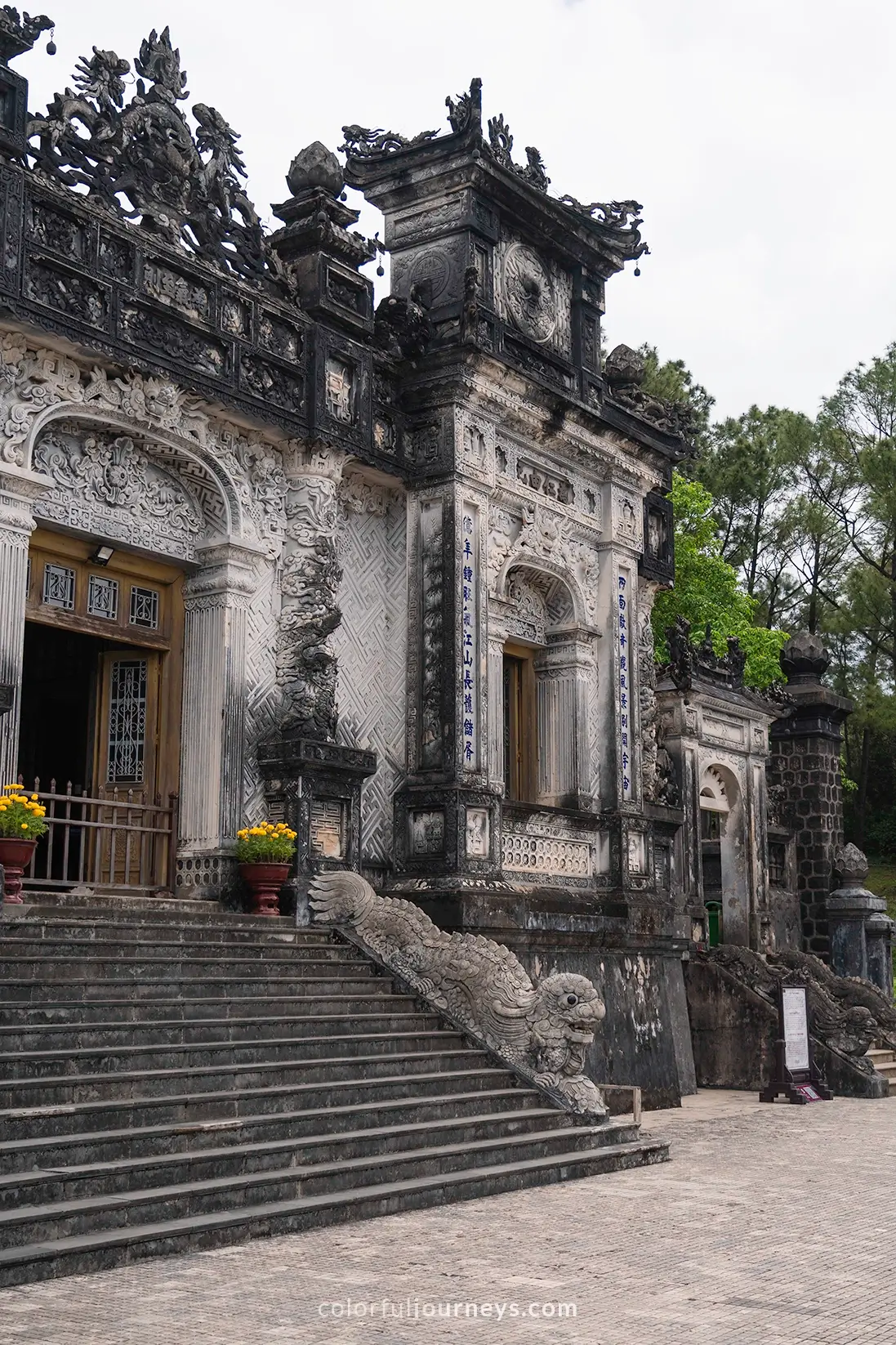
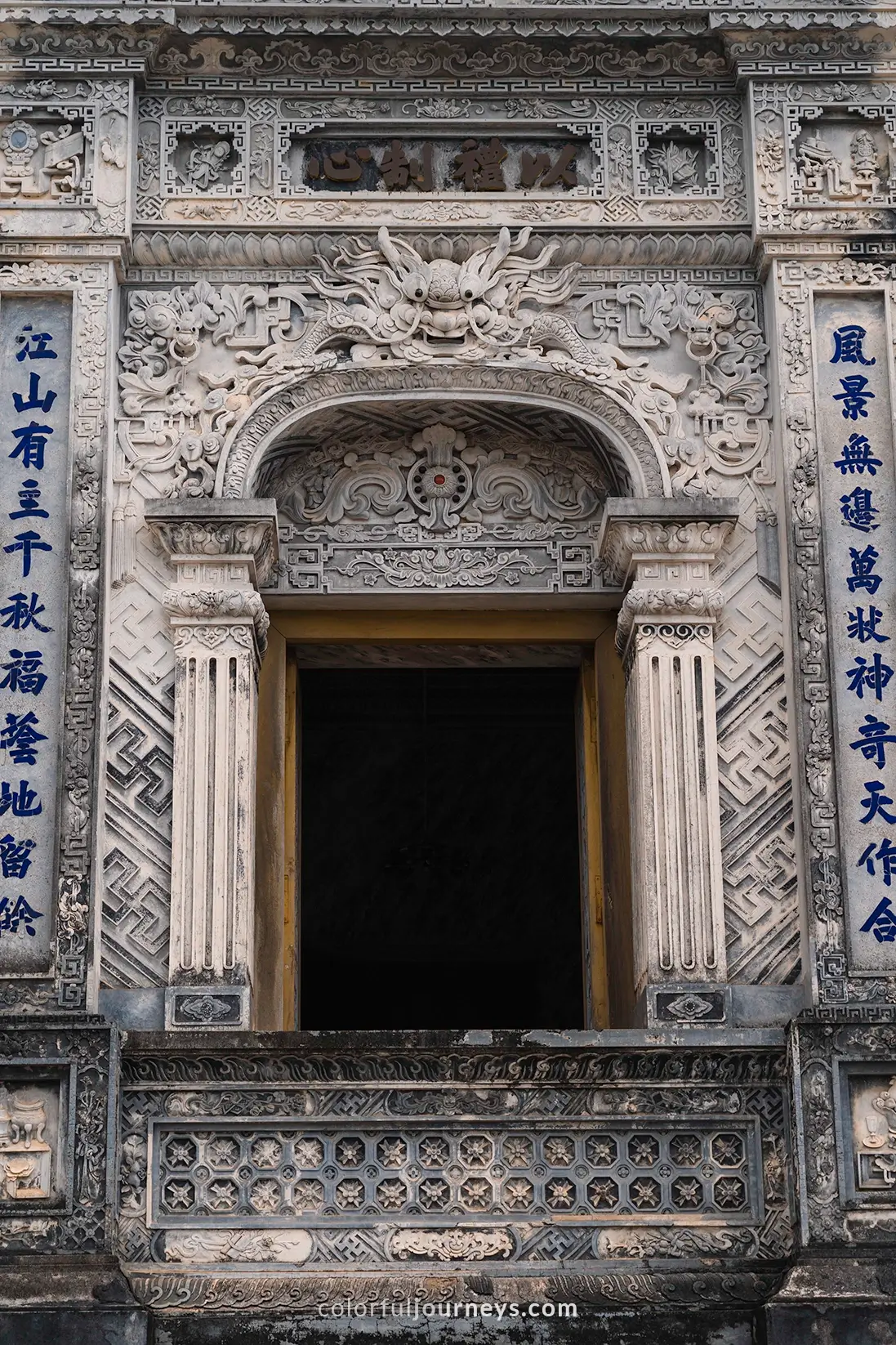

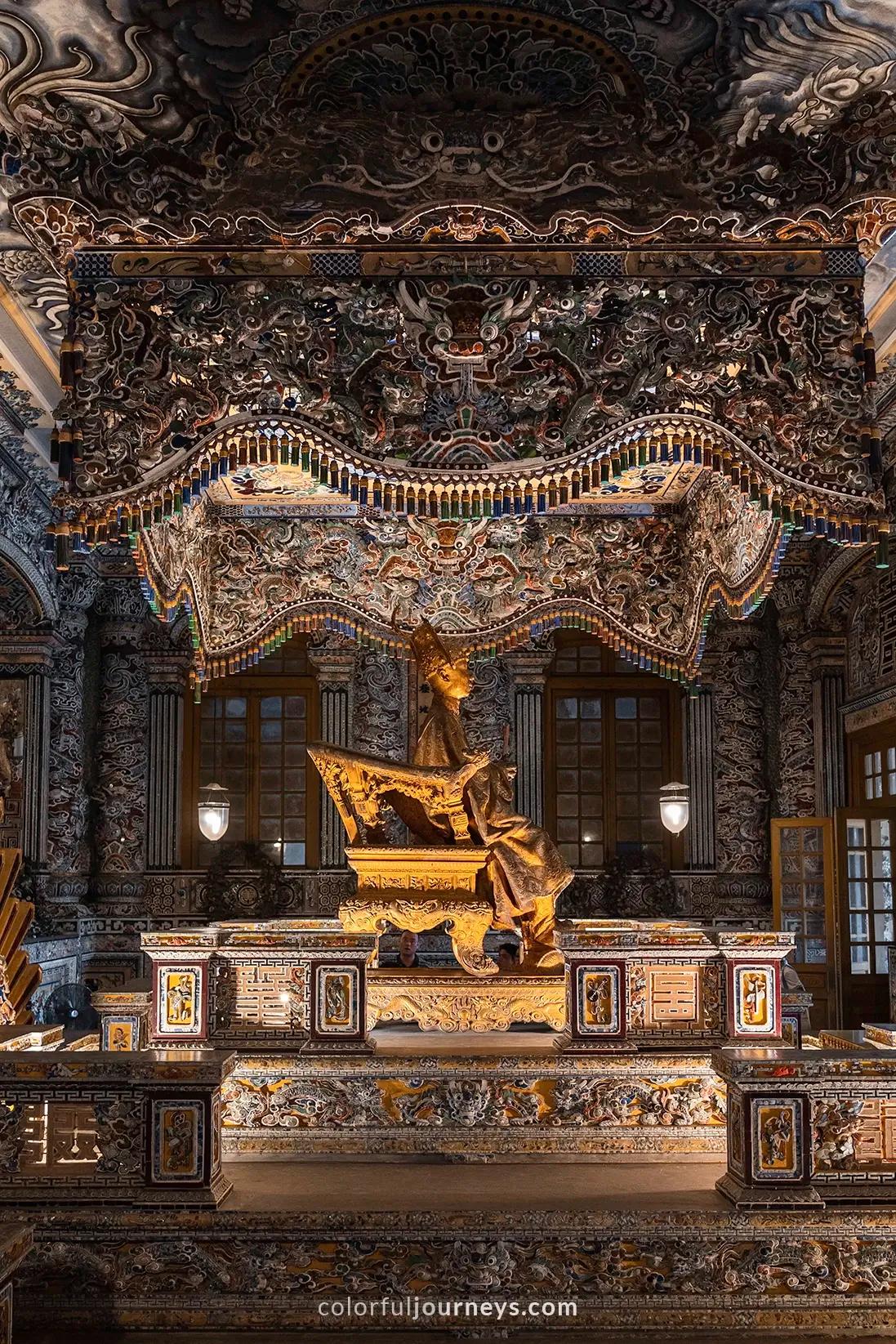

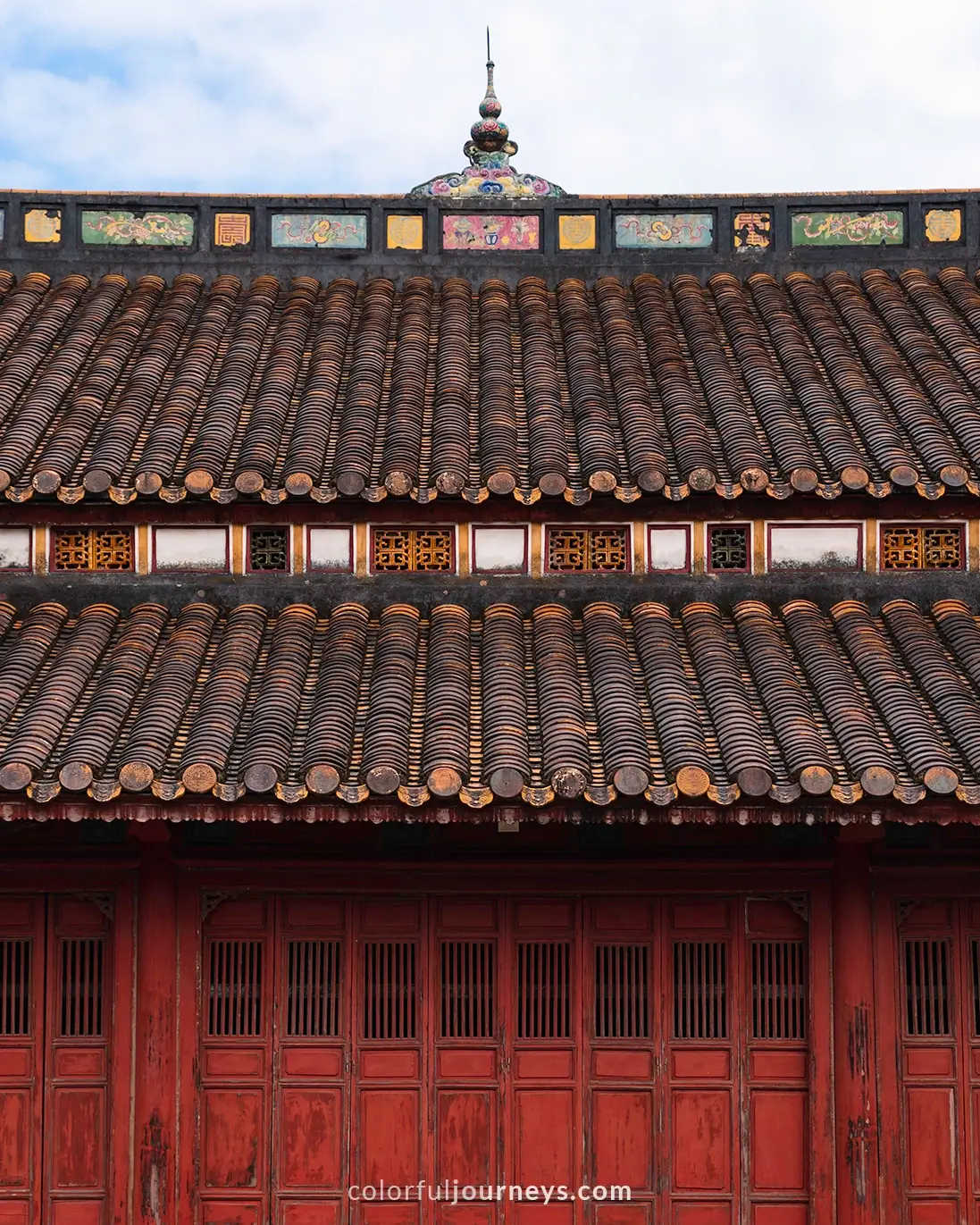
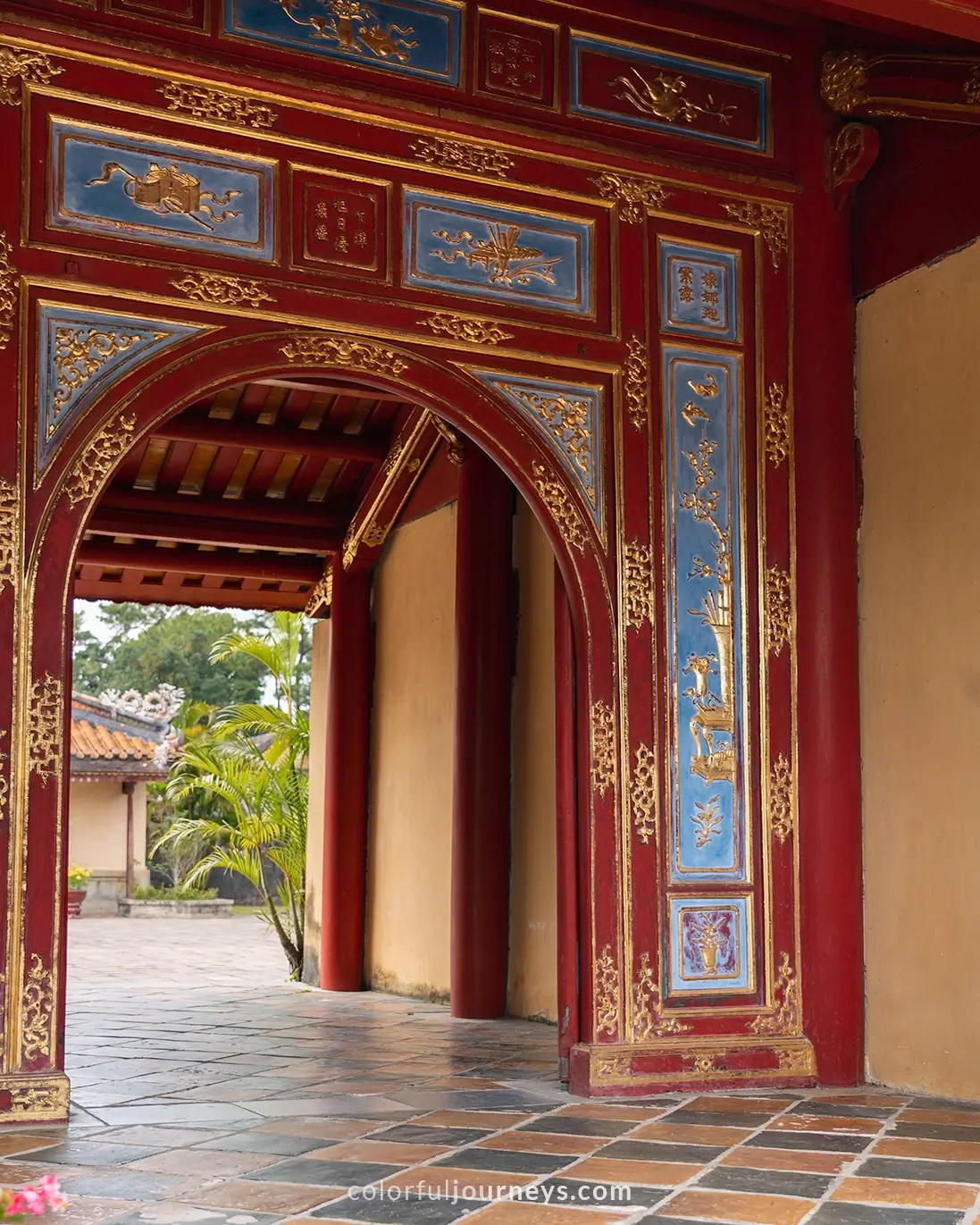
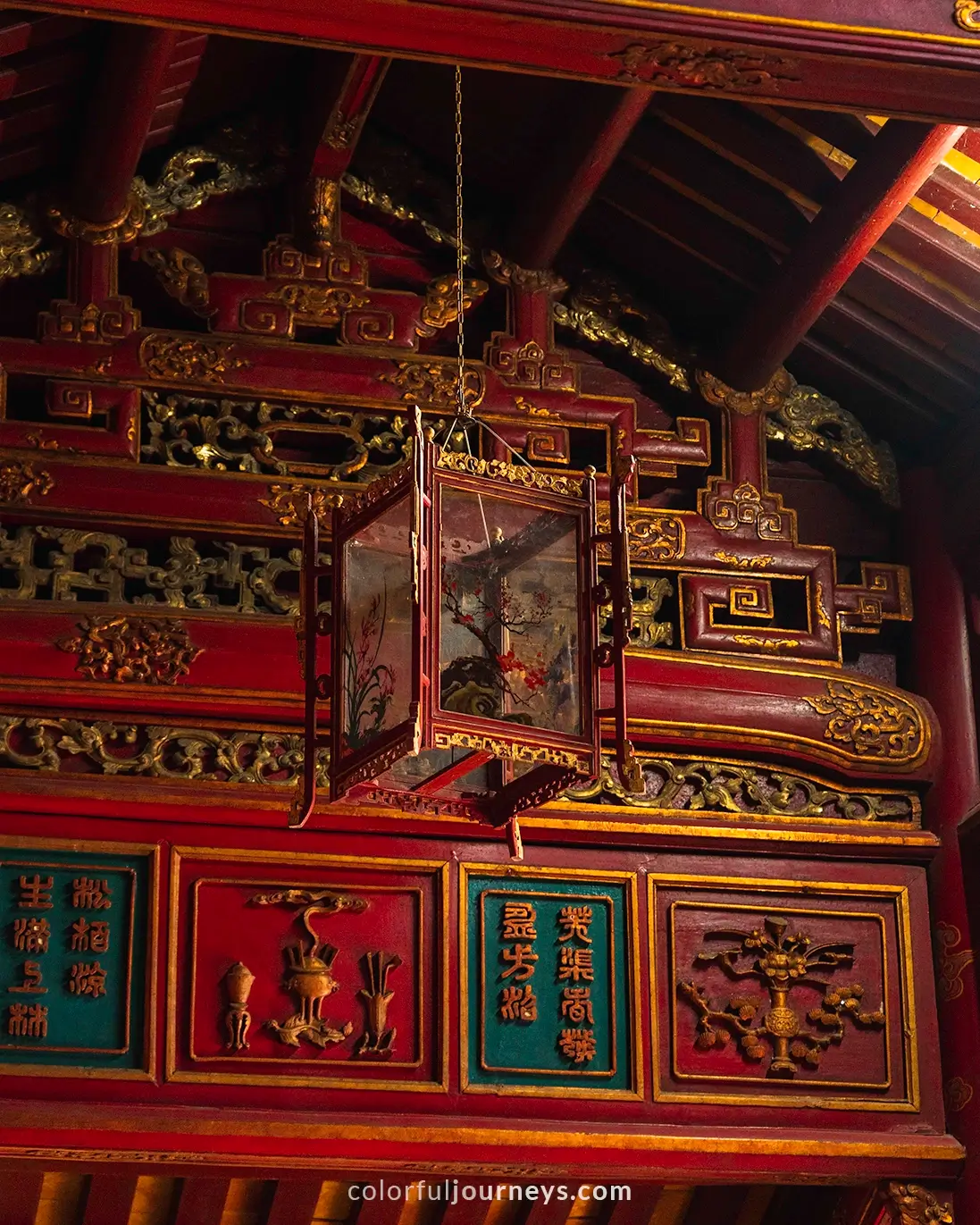
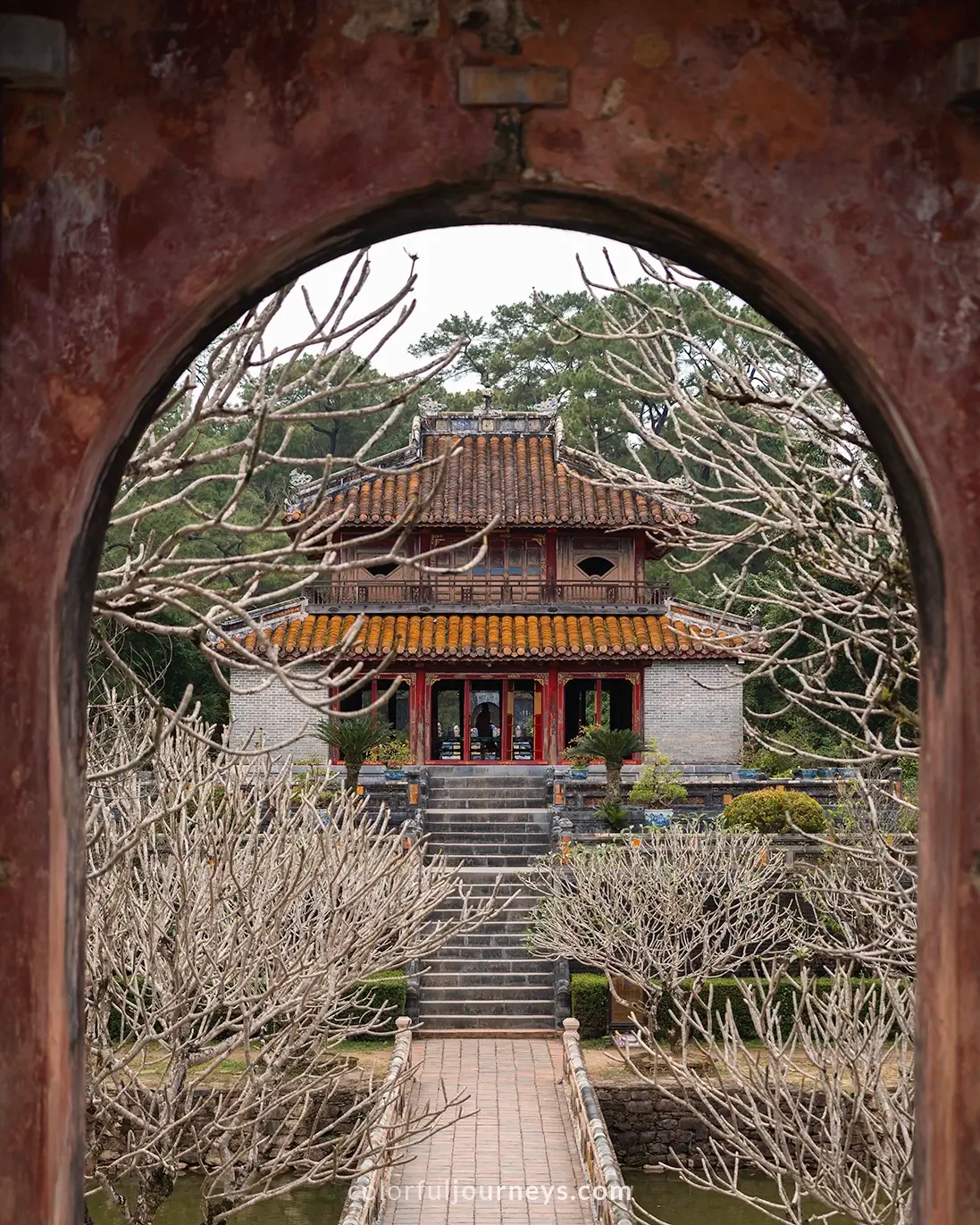
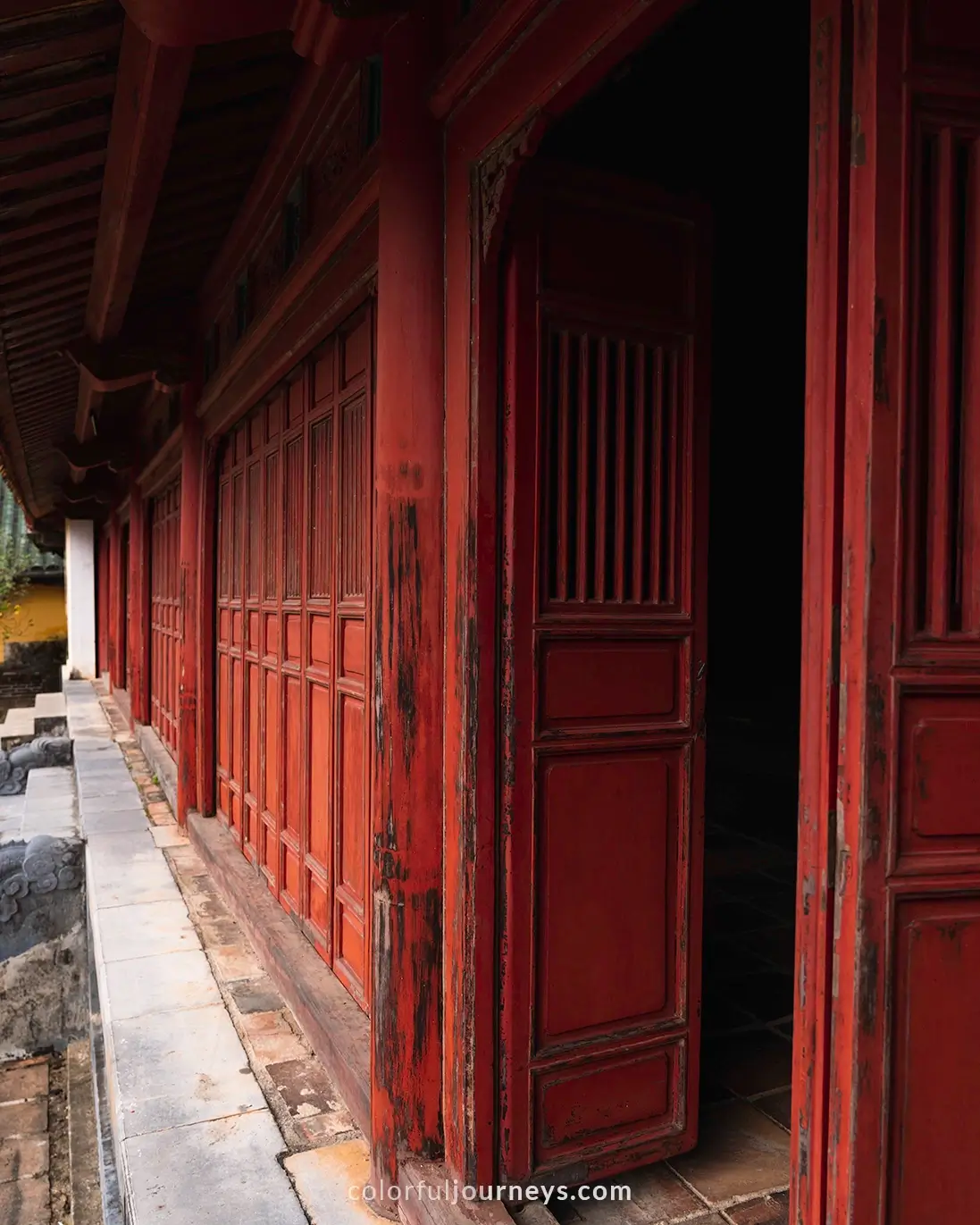

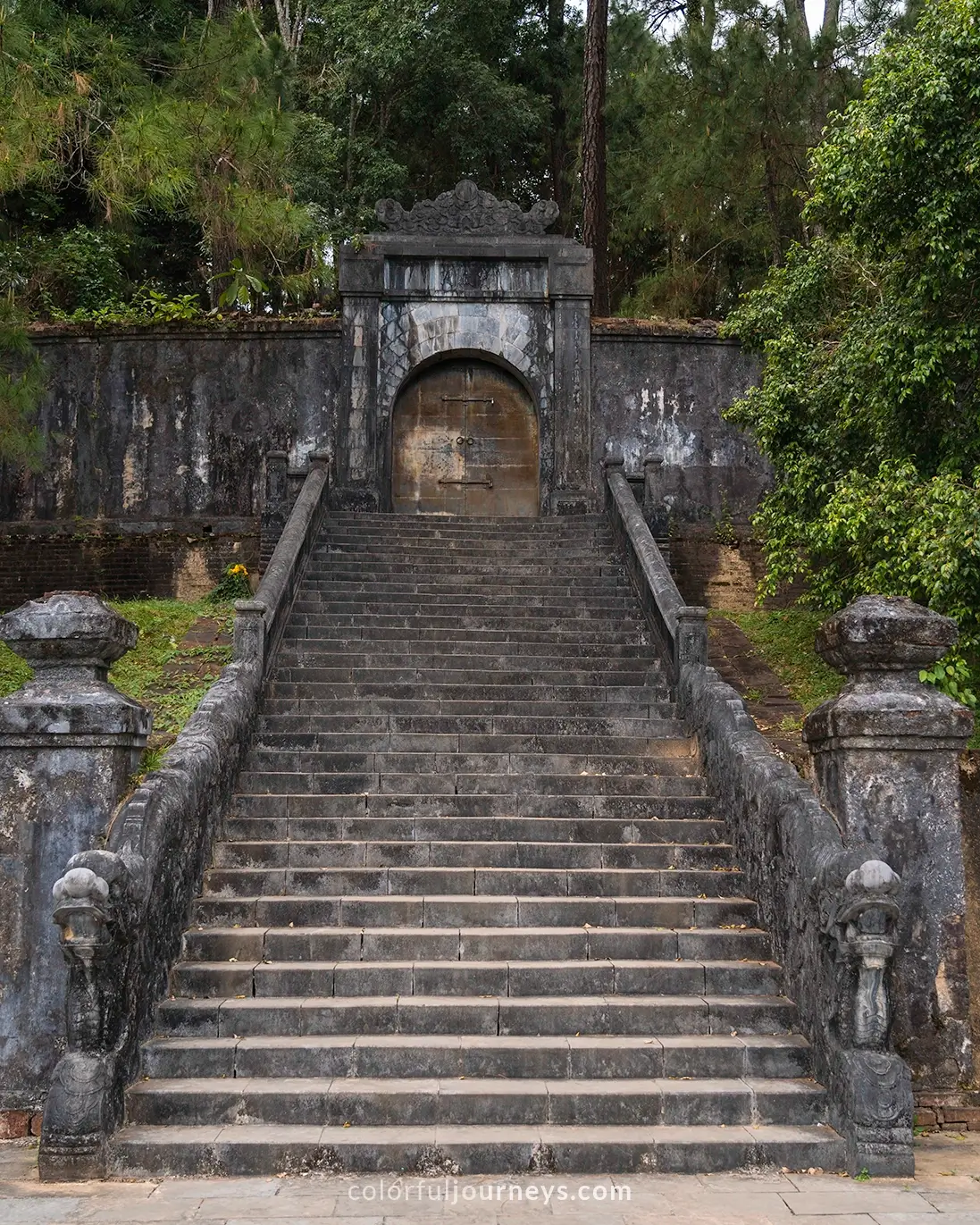
.webp)
.webp)
.webp)
.webp)
.webp)